Discover Taking Control: The ADHD Podcast
Taking Control: The ADHD Podcast

531 Episodes
Reverse
GPS is Now Open! Visit https://takecontroladhd.com/gps to learn more and take control of your planning today!That “this year will be different” promise feels so good when it’s fresh… and so brutal when the old patterns quietly return. In this episode, Pete and Nikki unpack why that boom-and-bust cycle hits so hard for ADHD brains: the early dopamine of a new system (or a newly organized sock drawer), the unrealistic maintenance expectations baked into most productivity advice, and the emotional crash that follows when the setup doesn’t hold.They dig into the real trap underneath the resolution mindset—living in the gap between who you were yesterday and who you hope to be tomorrow—and how to pull your attention back to the only place you actually have leverage: today. Along the way, they talk about why asking for help can feel so risky (hello, shame and RSD), how to regulate before you ask, and what it looks like to reframe help as advocacy instead of rescue. The goal isn’t becoming someone new. It’s learning to support the person you already are, with more time, more buffer, and a lot less self-punishment.Links & NotesFree download! How to Ask for Help Without the Guilt
(00:00) - Welcome to Taking Control: The ADHD Podcast
(03:30) - Letting Go of the "This Year will be a Different Story" Story 😉
🎯 Ready to turn your planning chaos into clarity? Take a look at Guided Planning Sessions (GPS)—from getting started to mastering your weekly routines. Whether you’re just picking your tools or refining a system that finally sticks, GPS gives you the structure, support, and community you need to make it happen. Explore more and join today at TakeControlADHD.com/GPS.
★ Support this podcast on Patreon ★
GPS is Now Open! Visit https://takecontroladhd.com/gps to learn more and take control of your planning today!When you're running on empty, your emotions hit harder and last longer. This week on Taking Control: The ADHD Podcast, Pete and Nikki explore what happens to emotional regulation when you're already depleted—and what you can actually do about it.Building on last week's conversation about compassionate reframing, this episode dives into the physiology behind emotional dysregulation and RSD (Rejection Sensitive Dysphoria). Pete shares insights from the polyvagal theory and the concept of the "vagal brake," explaining why breathing alone isn't enough when you're in fight-or-flight mode.Nikki breaks down the differences between emotional regulation, emotional dysregulation, and RSD with real examples that anyone with ADHD will recognize. Then they walk through practical grounding techniques that actually work—from ice cold water to wall push-ups to finding safe connection with others.You'll learn why your ADHD brain feels emotions at 100% when others are at 50%, why that negative comment from ten years ago still lives rent-free in your head, and how to create safety for your nervous system when you're already overwhelmed.Plus, get the free downloadable guide: "Regulate and Reframe: A Guide for Emotional Dysregulation and RSD" with simple tools to help you ground, reset, and find your way back to safety.Links & NotesDownload Regulate and Reframe: A Guide for Emotional Dysregulation and RSDThe Polyvagal Theory by Stephen W. PorgesPolyvagal Perspectives by Stephen W. PorgesSupport the Show on PatreonDig into the podcast Shownotes Database
(00:00) - Welcome to Taking Control: The ADHD Podcast
(04:04) - Emotional Regulation
(12:34) - Signs Your Tank is Empty
🎯 Ready to turn your planning chaos into clarity? Take a look at Guided Planning Sessions (GPS)—from getting started to mastering your weekly routines. Whether you’re just picking your tools or refining a system that finally sticks, GPS gives you the structure, support, and community you need to make it happen. Explore more and join today at TakeControlADHD.com/GPS.
★ Support this podcast on Patreon ★
GPS is Now Open! Visit https://takecontroladhd.com/gps to learn more and take control of your planning today!Pete and Nikki kick off the new season by naming the thing nobody wants to put on a vision board: the post-holiday crash. If you’ve come out the other side feeling “behind,” they argue you’re not failing—you’re recovering. And because ADHD loves a transition about as much as it loves a quiet restaurant, that return-to-normal whiplash can hit harder than you expect.The temptation, of course, is to fix the feeling by buying a brand-new feeling: new planner, new system, new you, new personality, new carbon-based lifeform. Nikki gently drags that impulse into the daylight and offers a more realistic move—skip the reinvention and reestablish one anchor routine you already know helps. Something small, repeatable, and boring in the way that’s actually useful, whether it’s hydration, an end-of-day reset, or getting sleep back on purpose instead of by accident.They also lean into compassionate reframing—swapping the “I blew it” narrative for language that’s both true and less cruel—because shame is a famously unreliable productivity tool. There’s a new resource tied to that idea, too, and it’s meant to be the quick handrail you grab when January starts acting like a performance review.Links & Notes📃 Download Compassionate Reframing for the ADHD Brain
(00:00) - Welcome to Taking Control: The ADHD Podcast
(03:26) - You're Not Behind... You're Exhausted
🎯 Ready to turn your planning chaos into clarity? Take a look at Guided Planning Sessions (GPS)—from getting started to mastering your weekly routines. Whether you’re just picking your tools or refining a system that finally sticks, GPS gives you the structure, support, and community you need to make it happen. Explore more and join today at TakeControlADHD.com/GPS.
★ Support this podcast on Patreon ★
GPS is Now Open! Visit https://takecontroladhd.com/gps to learn more and take control of your planning today!To close out Season 31, we turned the microphones over to someone who knows us better than almost anyone in our community: Melissa Bacheler, our DiscordMom, friend, and occasional chaos agent. Instead of the usual coaching, planning, and problem-solving, Melissa surprises us with a full-blown quiz-show-style conversation designed to reveal stories we’ve never told on air. No points, no pressure—just questions that spark nostalgia, laughter, and a surprising amount of self-reflection.Melissa steers us through three big categories: personal hobbies, memories from childhood and adolescence, and a handful of wildly imaginative “what if” scenarios. Nikki talks about her deep love of puzzles, watercolor, country music, and solitude. Pete shares his affection for filmmaking, collaborative storytelling, woodworking, and turning every car he’s ever owned into a “Doctor.” Together, they trade stories about childhood fears, nicknames that should never have been uttered in public, their dream cars, early celebrity crushes, and the music that scored each decade of their lives.And then Melissa goes for the big swings: Who would coach Pete if he could choose any fictional character? How would Nikki run the show if Pete were abducted by aliens—or voluntarily uploaded to the cloud, which frankly sounds inevitable? The answers—if you’ve listened to the show long enough—are deeply on brand.This is a relaxed end-of-season celebration with the person who keeps our Discord running and our community grounded. Thank you for an incredible Season 31—and yes, Season 32 begins in the new year!Links & NotesSupport the Show on PatreonDig into the podcast Shownotes Database
(00:00) - Welcome to Taking Control: The ADHD Podcast
(02:06) - Support the Show on Patreon!
(03:05) - Quiz Show!
(05:16) - Hobby Lob-by
(18:06) - Nostalgia Nuggets
(39:00) - What If Fantasies
🎯 Ready to turn your planning chaos into clarity? Take a look at Guided Planning Sessions (GPS)—from getting started to mastering your weekly routines. Whether you’re just picking your tools or refining a system that finally sticks, GPS gives you the structure, support, and community you need to make it happen. Explore more and join today at TakeControlADHD.com/GPS.
★ Support this podcast on Patreon ★
GPS is Now Open! Visit https://takecontroladhd.com/gps to learn more and take control of your planning today!Emotional planning sounds like one of those concepts you think you already understand — until you realize it has nothing to do with mood journaling, crystal grids, or color-coding your feelings. What Nikki brings forward in this conversation is something far more practical: the idea that ADHD motivation doesn’t start with logic. It starts with emotion. And if we learn to work with that reality instead of trying to muscle our way through it, the whole experience of getting things done changes.This episode was sparked by a discussion inside GPS, where members were reflecting on our earlier conversation with financial coach Nicole Stanley. Nicole talked about how emotionally meaningful goals are the ones we actually stick with — even when motivation falters. That hit a nerve. If emotional meaning helps us save money, why can’t it help us take out the trash, send the email, or finally make that dreaded insurance phone call?From there, Nikki pulls the curtain back on the truth most ADHDers already know in their bones: motivation isn’t something you summon by force. You can’t shame yourself into momentum. You can’t logic your way into action. And no amount of telling yourself you “should just do it” will magically conjure wind in your sails.We talk instead about how to invite motivation in: through novelty, stimulation, environment shifts, sensory comfort, short timers, playful challenges, and co-working with others who get it. We look closely at body doubling — not as a trend, but as an ADHD-power-tool that reliably flips the activation switch for so many of us. We explore how accountability creates connection, how structure eases initiation, and how changing a setting (or a soundtrack… or even a pen) can lighten the emotional load of tasks we avoid.And finally, we dig into the heart of emotional planning: identifying meaning in the task itself. Not fake meaning, not “I should care about this,” but real alignment — who benefits, what value the task honors, and how it makes life easier for future you. By the time Pete unexpectedly processes his own insurance-related avoidance live on the show, emotional planning has become more than a coaching tool. It’s a reframing — one that reminds us that motivation isn’t a moral quality; it’s a relationship between emotion and action.If you’ve been stuck, stalled, circling a task like it’s a shark in shallow water, this episode gives you both language and strategy to step toward it with less dread. It’s not about forcing motivation. It’s about building the conditions where motivation has an easier time finding you.Links & NotesSupport the Show on PatreonDig into the podcast Shownotes Database
(00:00) - Welcome to Taking Control: The ADHD Podcast
(01:58) - Support the Show at Patreon.com/theadhdpodcast
(03:43) - Emotional Planning
(14:10) - Invite Meaning In
🎯 Ready to turn your planning chaos into clarity? Take a look at Guided Planning Sessions (GPS)—from getting started to mastering your weekly routines. Whether you’re just picking your tools or refining a system that finally sticks, GPS gives you the structure, support, and community you need to make it happen. Explore more and join today at TakeControlADHD.com/GPS.
★ Support this podcast on Patreon ★
GPS is Now Open! Visit https://takecontroladhd.com/gps to learn more and take control of your planning today!Aging with ADHD often hides in the background of our conversations, even though so many of us feel its effects every day. In this episode, we bring it forward with help from Jami Shapiro, whose work sits right at the intersection of ADHD, transitions, and later-life planning. She’s a senior move manager, ADHD coach, and the voice behind Grandma Has ADHD. Her mix of humor, candor, and lived experience sets the tone for a conversation that feels both comforting and disarming.Jami’s ADHD diagnosis arrived in her mid-40s, long after she had built a career, raised children, and weathered major life changes. The bigger surprise came later: realizing her mother had been living with ADHD as well, completely undiagnosed into her seventies. That discovery reshaped not only Jami’s understanding of her family history but also the emotional patterns she had carried for decades. It softened old misunderstandings and gave her and her mother a way to talk to each other that hadn’t existed before.From there, the conversation widens into the many transitions that come with midlife and beyond—downsizing, empty rooms once filled by children, changing routines, and the simple pressure of making decisions when every choice feels weighty. Jami explains how emotional intensity, uncertainty, and decision fatigue show up more sharply for ADHD adults, especially as responsibilities shift and long-established structures fall away. She walks us through what makes these transitions overwhelming and what actually helps when “just start somewhere” doesn’t land.We also spend time on the parent–child dynamic that emerges when adult children try to help their aging parents with organizing or downsizing. Jami gives a clear look at why these roles easily tangle, how shame gets triggered on both sides, and why a neutral guide often makes the work calmer for everyone involved. Her stories from years of senior move management reveal patterns that many families will recognize instantly.There’s also a practical side to this conversation: how to create a floor plan before a move, how to sort sentimental objects without spiraling, how to use photos and “family show-and-tell” conversations to preserve memories, and how to stay grounded when technology becomes a barrier. Jami talks openly about scams, tech overwhelm, and the very real worries older adults carry about cognitive decline—topics that are easier to avoid than to name, but essential for keeping ourselves and our loved ones safe.The heart of this episode is simple: learning about ADHD later in life doesn’t erase the years behind you, but it can change how you interpret them. It can ease old guilt, untangle family stories, and give you permission to approach the next chapter with more clarity and less self-blame. Jami’s work is full of that spirit, and her guidance makes the process of aging with ADHD feel less isolating and more like something we can navigate together.Links & NotesJami ShapiroSupport the Show on PatreonDig into the podcast Shownotes Database
(00:00) - Welcome to Taking Control: The ADHD Podcast
(02:04) - Support the Show on Patreon
(02:50) - Introducing Jami Shapiro • Aging with ADHD
(12:07) - Transitions
(22:23) - Scams and Cognitive Decline
(26:50) - Giving Up vs Letting Go
(31:56) - Where to Start?
(37:52) - Technology
(41:28) - What age is "Older?"
🎯 Ready to turn your planning chaos into clarity? Take a look at Guided Planning Sessions (GPS)—from getting started to mastering your weekly routines. Whether you’re just picking your tools or refining a system that finally sticks, GPS gives you the structure, support, and community you need to make it happen. Explore more and join today at TakeControlADHD.com/GPS.
★ Support this podcast on Patreon ★
GPS is Now Open! Visit https://takecontroladhd.com/gps to learn more and take control of your planning today!We’re revisiting a classic — and for longtime listeners, a foundational topic: the Tolerations List. These are the small, nagging things we put up with every day — the crooked picture, the squeaky door, the wrong clock time — that quietly drain our focus and energy. Pete and Nikki first talked about tolerations all the way back in episode 106, and a decade later, they’re still finding new lessons in this deceptively simple coaching exercise.In this episode, they explore how tolerations evolve over time and how ADHD brains are especially vulnerable to letting them pile up. Nikki brings fresh perspective from her early coaching school days, where the idea originated as a way to identify and release mental clutter. They dive into how tolerations become invisible over time — from broken stove knobs and unpainted bathrooms to window coverings that never got ordered. Together they unpack the emotional undercurrent of these seemingly minor annoyances: why we live with them, how we rationalize them, and what it means to decide which ones are worth fixing versus simply accepting.They also revisit one of their most endearing long-running debates: is it a toleration or a project? From broken dishwashers to cluttered garages, they draw the line between avoidance, acceptance, and intentional deferral. And, in true ADHD fashion, they discuss how everything feels urgent — until you realize that not everything is.By the end, Pete and Nikki offer a practical guide to managing tolerations using the GPS Planning color system: identifying red (urgent), green (important), and blue (non-urgent) tasks, and intentionally tackling the ones that genuinely lighten your cognitive load. You’ll learn how to make the invisible visible, how to reclaim small pockets of energy, and how to let go — compassionately — of the things that no longer deserve your bandwidth.Links & NotesSupport the Show on PatreonDig into the podcast Shownotes Database
(00:00) - Welcome to Taking Control: The ADHD Podcast
(02:26) - Support the Show on Patreon!
(03:53) - Tolerations
(22:56) - Tracking and Prioritizing Tolerations
🎯 Ready to turn your planning chaos into clarity? Take a look at Guided Planning Sessions (GPS)—from getting started to mastering your weekly routines. Whether you’re just picking your tools or refining a system that finally sticks, GPS gives you the structure, support, and community you need to make it happen. Explore more and join today at TakeControlADHD.com/GPS.
★ Support this podcast on Patreon ★
GPS is Now Open! Visit https://takecontroladhd.com/gps to learn more and take control of your planning today!This week, we’re talking about what it means to be both introverted and ADHD, and how those two identities can collide—or beautifully harmonize—when you finally understand yourself. Our guest is Kyrus Keenan Westcott, better known as Ky, the creator behind The Vibe With Ky. With more than 1.5 million followers across TikTok, Instagram, and Facebook, Ky has become a leading voice for ADHD awareness, mental health, and the art of adulting without apology.Ky joins Pete and Nikki to share his story of a late ADHD diagnosis at age 35—how it reshaped his understanding of his past, and how he processed it through stages of grief, anger, and acceptance. We talk about what it means to find peace after years of wondering, “If I had only known sooner.”Then we dig into introversion. Ky helps us debunk the myths—no, being an introvert doesn’t mean you hate people, and it’s not the same as social anxiety. It’s about energy: how you spend it, how you recover it, and how to protect it through healthy boundaries. From managing “introvert guilt” to learning the beauty of traveling solo and saying no without shame, Ky brings humor and humanity to the experience of living quietly in a loud world.Oh, and yes—there’s Gilmore Girls talk. Plus, Ky reveals his brand-new fragrance collaboration: “Why Did I Walk Into This Room?”, a cherry-pie-and-cinnamon scent honoring the spirit of adult ADHD.If you’ve ever wrestled with the feeling that you’re “too quiet,” “too tired,” or “too late,” this episode will remind you that your timing and your energy are perfect—just the way they are.Links & NotesWhy Did I Walk Into This Room? collaboration with The Vibe With KyThe Vibe With KySupport the Show on PatreonDig into the podcast Shownotes Database
(00:00) - Welcome to Taking Control: The ADHD Podcast
(03:42) - Introducing Kyrus Keenan Wescott
(12:44) - Introversion
(37:16) - Ky's ADHD Fragrance!
🎯 Ready to turn your planning chaos into clarity? Take a look at Guided Planning Sessions (GPS)—from getting started to mastering your weekly routines. Whether you’re just picking your tools or refining a system that finally sticks, GPS gives you the structure, support, and community you need to make it happen. Explore more and join today at TakeControlADHD.com/GPS.
★ Support this podcast on Patreon ★
GPS is Now Open! Visit https://takecontroladhd.com/gps to learn more and take control of your planning today!When Dr. Nachi Felt first joined us, he introduced two big ideas that stuck with a lot of listeners—the Cycle of Ambiguity and the Cycle of Agency. Those conversations gave language to what so many of us experience every day with ADHD: the frustration of getting stuck, and the relief that comes when we finally start moving again.This time, Nachi is back to take the next step forward with something new: the Cycle of Accountability. It’s not about guilt or discipline or “holding yourself to higher standards.” It’s about what happens when you stop treating accountability like punishment and start seeing it as connection—to your values, to your sense of purpose, to the people who matter to you.Together, we dig into how meaning drives motivation for ADHD brains, why avoidance feels so sneaky and familiar, and how the smallest acts of self-acceptance can spark real change. Along the way, Nachi talks about trauma, growth, and what it means to finally believe that you matter enough to take ownership of your own story.Links & NotesClearheaded by Dr. Nachi Felt • Sign up and get the introduction to the new book right now!Support the Show on PatreonDig into the podcast Shownotes Database
(00:00) - Welcome to Taking Control: The ADHD Podcast
(02:14) - Support the Show: Https://patreon.com/theadhdpodcast
(03:06) - Introducing Dr. Nachi Felt
(05:10) - The Cycle of Ambiguity
(23:12) - The Cycle of Accountability
(45:23) - Clearheaded by Dr. Nachi Felt
🎯 Ready to turn your planning chaos into clarity? Take a look at Guided Planning Sessions (GPS)—from getting started to mastering your weekly routines. Whether you’re just picking your tools or refining a system that finally sticks, GPS gives you the structure, support, and community you need to make it happen. Explore more and join today at TakeControlADHD.com/GPS.
★ Support this podcast on Patreon ★
GPS is Now Open! Visit https://takecontroladhd.com/gps to learn more and take control of your planning today!We love to say it: “Your future self will thank you.” It’s a mantra for hopeful planning, a reminder that the effort you put in now will pay off later. But for people with ADHD, that phrase can land like a challenge you keep failing to meet — because the gap between Now You and Future You can feel impossibly wide.This week, we welcome back our friend James Ochoa, licensed professional counselor, author of Focused Forward, and creator of the new reflective tool 11Q Your ADHD. Together, we’re digging into what makes long-term planning feel so fraught for ADHD brains — and how we can reconnect with the version of ourselves we’re trying to help.We’ll talk about the emotional weight of goal-setting, how perfectionism sabotages progress, and why redefining responsibility as self-support — not pressure — changes everything. James highlights how planning isn’t about control or productivity; it’s about compassion. When you treat “future you” like someone worth caring for, you create the emotional safety that makes real progress possible.We also explore practical scaffolding: tools, community, and systems that “have your back” when motivation dips — because ADHD management isn’t a solo project. Whether you’re learning to forgive past missteps or just trying to make tomorrow a little easier, this conversation will help you find hope and grace in the small choices that compound over time.And stay tuned — James introduces his new project, 11Q Your ADHD, a reflective experience designed to help you strengthen your internal guidance system and cultivate a kinder, more curious relationship with yourself.Future You isn’t a stranger. They’re someone you can start taking care of — today.Links & Notes11Q Your ADHD - Free Vision Exercise | James OchoaSupport the Show on PatreonDig into the podcast Shownotes Database
(00:00) - Welcome to Taking Control: The ADHD Podcast
(02:02) - Support the Show at Patreon.com/theadhdpodcast
(02:46) - Unapologetically ADHD is OUT!
(03:57) - Introducing James Ochoa
(06:16) - Visualizing Your Future Self
(17:09) - A Sidebar on Trust
(39:22) - 11Q Your ADHD
🎯 Ready to turn your planning chaos into clarity? Take a look at Guided Planning Sessions (GPS)—from getting started to mastering your weekly routines. Whether you’re just picking your tools or refining a system that finally sticks, GPS gives you the structure, support, and community you need to make it happen. Explore more and join today at TakeControlADHD.com/GPS.
★ Support this podcast on Patreon ★
GPS is Now Open! Visit https://takecontroladhd.com/gps to learn more and take control of your planning today!In 1992, a struggling advertising executive in Manhattan walked into his Upper East Side doctor's office with what he thought might be a revelation. His boss had just been diagnosed with ADHD, and the symptoms—the scattered thinking, the time that evaporated, the constant feeling of running to catch up—sounded eerily familiar. The doctor listened, nodded, and delivered his professional opinion: "ADD is a myth created by the media. You just need to do more crossword puzzles."Alan Brown took that advice seriously. For five years, he became exceptional at the New York Times crossword puzzle—almost able to complete the notoriously difficult Saturday edition. His ADHD, however, remained completely uncured.This week on Taking Control: The ADHD Podcast, Alan Brown—now known as the ADD Crusher—returns after nine years to unpack a question that haunts nearly everyone with ADHD after diagnosis: Now what?Because here's what nobody tells you: getting diagnosed is the easy part. The hard part is learning to ask for what you need without drowning in shame. The hard part is figuring out how to advocate for yourself when the very act of asking feels like admitting defeat.Alan walks us through a discovery that transformed his career: the moment he refused a shared office space and, instead of being fired or labeled difficult, ended up with a private office overlooking lower Manhattan. It wasn't magic. It wasn't luck. It was understanding something fundamental about advocacy that most people miss entirely.The conversation reveals two deceptively simple mindset shifts that unlock the door to effective self-advocacy. The first: replacing "I suck at this" with "I'm trying." The second: swapping "I should be able to" with "I am willing to." These aren't just feel-good affirmations—they're the difference between staying stuck and making progress.But there's a deeper pattern here in the concept of "expansionist thinking"—the ADHD superpower of seeing connections and possibilities everywhere—and how it becomes weaponized against us. One small failure explodes into "I suck at everything." One unmet expectation spirals into complete self-doubt. Understanding this pattern is the first step to interrupting it.Throughout the conversation, a central question emerges: When are you at your best? Not when do you think you should be at your best. Not when does everyone else seem to be at their best. When are you actually, genuinely at your best? Answer that question honestly, and you've identified every accommodation you'll ever need.Alan shares his upcoming presentation at the ADHD conference in Kansas City—"Ten Simple Mindset Shifts for More Doing and Less Stressing"—and offers his free ebook at ADDCrusher.com: "Five Things We're Doing Every Day That Make Our ADHD Worse."Because it turns out the real question isn't whether you deserve accommodations. The real question is: what becomes possible when you finally ask for what you need?Links & NotesADDCrusher.comInternational Conference on ADHD 2025Support the Show on PatreonDig into the podcast Shownotes Database
(00:00) - Welcome to Taking Control: The ADHD Podcast
(02:12) - Support the show by becoming a Patron today!
(03:10) - Introducing Alan Brown
(03:42) - ADHD Advocacy
(10:46) - The Meta Shame of Self-Advocacy
(14:26) - Mindset
(34:15) - How do you know what to ask for?
(44:19) - Find Alan
🎯 Ready to turn your planning chaos into clarity? Take a look at Guided Planning Sessions (GPS)—from getting started to mastering your weekly routines. Whether you’re just picking your tools or refining a system that finally sticks, GPS gives you the structure, support, and community you need to make it happen. Explore more and join today at TakeControlADHD.com/GPS.
★ Support this podcast on Patreon ★
GPS is Now Open! Visit https://takecontroladhd.com/gps to learn more and take control of your planning today!Imagine this: one person spends ten minutes with their doctor, walks out with a prescription, and calls it an ADHD diagnosis. Another spends an entire day in a psychologist’s office, testing memory, attention, and executive function, only to arrive at the very same conclusion. Which one is “real”? Which one counts?In this episode, Pete Wright and Nikki Kinzer talk with psychologist Dr. Amie DeHarpporte, who has spent her career living at the intersection of these contradictions. Once a high school teacher and now a specialist in ADHD assessment, Dr. DeHarpporte has seen how elusive—and yet how desperately needed—a clear diagnosis can be. She explains why ADHD is simultaneously overdiagnosed and underdiagnosed, how TikTok has blurred the boundaries of what people think ADHD looks like, and why the process is as much art as it is science.But the story isn’t just about tests and checklists. At its heart, a diagnosis is about validation—about someone finally saying, yes, what you’ve been experiencing all these years is real. Dr. DeHarpporte takes us inside her practice, showing how thorough assessment can unravel years of shame, rewrite self-narratives, and reveal strengths hidden in plain sight.What you’ll discover is that ADHD diagnosis isn’t a binary. It’s a lens, a way of telling the story of your life with more clarity. And sometimes, that clarity is the most important prescription of all.Links & NotesDr. Amie DeHarpporte’s practice: Portage PsychologyUnapologetically ADHD paperback release October 28Support the Show on PatreonADHD Discord CommunityDig into the podcast Shownotes Database
(00:00) - Welcome to Taking Control: The ADHD Podcast
(03:02) - Support the Show!
(05:31) - Introducing Dr. Amie DeHarpporte
(07:12) - The Diagnosis Space
(14:06) - What goes into a diagnosis
🎯 Ready to turn your planning chaos into clarity? Take a look at Guided Planning Sessions (GPS)—from getting started to mastering your weekly routines. Whether you’re just picking your tools or refining a system that finally sticks, GPS gives you the structure, support, and community you need to make it happen. Explore more and join today at TakeControlADHD.com/GPS.
★ Support this podcast on Patreon ★
GPS is Now Open! Visit https://takecontroladhd.com/gps to learn more and take control of your planning today!Here's a puzzle that will stop you cold: ADHD has exploded into public consciousness. More diagnoses than ever. More research. More conversations. And yet? Turn on your television. What stares back at you?The class clown. The scatterbrained sidekick. The walking punchline.Something doesn't add up.This disconnect—between lived reality and screen reality—forms the heart of this week’s conversation with Matthew Fox, whose passion for dissecting genre media runs as deep as their own neurodivergent experience. Fox hosts Superhero Ethics and other podcasts that examine the ethics woven through our most beloved stories. But today, they’re hunting bigger game.Consider this: Maria von Trapp. "How do you solve a problem like Maria?" Sound familiar? Fox argues she's ADHD incarnate. Flighty. Unpredictable. Out of focus. The nuns can't pin her down. Neither can we, apparently. Because nobody—not once—uses the words.That's the pattern. Characters burst with hyperactivity, impulsivity, attention challenges. Dennis the Menace in the '50s. Tigger bouncing through the Hundred Acre Wood. Calvin racing after imaginary adventures. All ADHD-coded. None explicitly labeled.Why does this matter? Because children search desperately for themselves in stories. Adults do too, though less consciously. When representation gets frozen in stereotype—or worse, buried in subtext—it shapes how teachers see students, how employers evaluate talent, how we see ourselves.The conversation zigzags through terrain both familiar and startling. Percy Jackson, where ADHD becomes a god-given power. Phil Dunphy, the endearing but scattered dad. Jake Peralta solving crimes through controlled chaos. Then the darker territory: Barney Stinson using ADHD as an excuse for predatory behavior.But here's where it gets interesting. Fox points out a part of the conversation that is too often forgotten: the gender patterns. Hyperactive male character? Meet his organized, grounding female partner. It's everywhere once you see it. Brooklyn Nine-Nine. Modern Family. New Girl. The narrative is always the same—love of a steady woman tames the chaotic man.And buried within all of this lies a more uncomfortable truth. In our hunger to see ourselves on screen, we claim characters who were never intended as representation. We read ADHD into Kirk and Spock, into Hiccup and his dragon, into anyone who shows even a glimmer of recognition.Is that enough? Should it be?Whether you're searching for positive examples for your children or trying to untangle how decades of media have shaped your own relationship with neurodivergence, this conversation might just shift how you watch ... everything.Links & NotesShows and MoviesModern Family - Phil Dunphy as ADHD-coded characterBrooklyn Nine-Nine - Jake Peralta as positive ADHD representationHow I Met Your Mother - Barney Stinson as problematic ADHD portrayalNew Girl - Nick and Jess relationship dynamicThe Simpsons - Bart Simpson and Ritalin episode (2000)Community - Abed Nadir as autism-coded characterParenthood (TV series) - Autism representationArrow - Felicity Smoak as ADHD-coded characterK-pop Demon Hunter - Zoe as positive ADHD representationThe Sound of Music - Maria von Trapp as ADHD-codedFinding Nemo/Finding Dory - Dory as ADHD representationHow to Train Your Dragon - Hiccup as ADHD-codedBooks and CharactersPercy Jackson series by Rick Riordan - ADHD as demigod traitCalvin and Hobbes - Calvin as ADHD-codedDennis the Menace - Classic hyperactive representationWinnie the Pooh characters as neurodivergent representationPodcasts by Matthew FoxThe Ethical PandaSuperhero EthicsStar Wars GenerationsMarvel Movie Minute (co-hosted with Pete Wright)The Once and Future Parent(Coming soon!)Links & NotesSupport the Show on PatreonDig into the podcast Shownotes Database
(00:00) - Welcome to Taking Control: The ADHD Podcast
(02:25) - Support the Show and Become a Patron!
(03:01) - The ADHD Representation Paradox
(03:51) - Introducing Matthew Fox
🎯 Ready to turn your planning chaos into clarity? Take a look at Guided Planning Sessions (GPS)—from getting started to mastering your weekly routines. Whether you’re just picking your tools or refining a system that finally sticks, GPS gives you the structure, support, and community you need to make it happen. Explore more and join today at TakeControlADHD.com/GPS.
★ Support this podcast on Patreon ★
GPS is Now Open! Visit https://takecontroladhd.com/gps to learn more and take control of your planning today!Money is rarely just about math—it’s about stories, habits, emotions, and, for ADHDers, often a deep sense of shame. In this episode, Pete and Nikki sit down with Nicole Stanley, financial coach and founder of Arise Financial Coaching, to unpack the hidden ways ADHD intersects with our finances—and how we can finally start to build a healthier, ADHD-friendly relationship with money.Nicole shares her own diagnosis journey and the challenges of postpartum depression, financial anxiety, and feeling “not enough” as a new mom. From there, she walks us through how our early experiences shape money beliefs (most of us make up our financial mindset by age seven!), and why traditional budgeting advice so often fails the ADHD brain.This conversation is a blueprint for anyone who’s ever felt overwhelmed, behind, or just exhausted trying to “do money right.” Nicole reframes key concepts: how to spot the real root of your financial stress, why automating your systems might be better than trying to “budget harder,” and how to emotionally connect to your goals so you’re actually excited to follow through.Plus: what financial coaches really do, how ADHDers can leverage dopamine to create a positive money loop, and the five core financial problems that every person needs to identify before they can move forward. Whether you’re in credit card debt, unsure where your money’s going, or just sick of feeling behind—this episode is your permission to drop the shame and start where you are.Links & NotesArise Financial CoachingYNAB (You Need A Budget)Become a Supporting MemberJoin the ADHD Discord CommunityDig into the podcast Shownotes DatabaseBooks Mentioned in This Episode:The Simple Path to Wealth by J.L. CollinsYour Money or Your Life by Vicki Robin & Joe DominguezI Will Teach You to Be Rich by Ramit SethiHappy Money by Ken HondaYou mean I’m Not Lazy, Stupid, or Crazy?! by Kate Kelly & Peggy RamundoDie with Zero: Getting All You Can from Your Money and Your Life by Bill Perkins
(00:00) - Introducing Nicole Stanley
(02:58) - Nicole's ADHD Journey
(05:46) - Welcome to Taking Control: The ADHD Podcast
(08:33) - ADHD Money Assumptions
(14:20) - The Areas of our Financial Lives
(19:00) - What does it mean to "retire well?"
(34:25) - The Five Potential Problems in Your Financial Life
(41:40) - Coaching, Counseling, Advising, Accounting
🎯 Ready to turn your planning chaos into clarity? Take a look at Guided Planning Sessions (GPS)—from getting started to mastering your weekly routines. Whether you’re just picking your tools or refining a system that finally sticks, GPS gives you the structure, support, and community you need to make it happen. Explore more and join today at TakeControlADHD.com/GPS.
★ Support this podcast on Patreon ★
GPS is Now Open! Visit https://takecontroladhd.com/gps to learn more and take control of your planning today!Money and ADHD: two words that often stir up stress, shame, or avoidance. But what if we stopped thinking of planning as punishment and instead saw it as a path to clarity, confidence, and even peace of mind? This week, Pete and Nikki welcome Ben Barlowe and Ernie Reppe—the Budget Nerds of YNAB—to talk about why the word budgeting is going out of style and how we’re still all-in on the money mindset.They share how to build a money mindset that’s about purpose, not restriction, and why giving every dollar a job is the simple shift that makes all the difference. From impulse spending and forgotten bills to shame spirals and the fear of facing financial reality, this conversation gets real about the unique challenges ADHD brings to money management—and how to take the sting out of them.Whether you’re brand new to planning your finances or you’ve tried before and burned out, this is your invitation to make peace with your money and take back control.Links & NotesGetting Started with YNAB with Ben and ErnieYNAB for High Income EarnersGet your 34-day Trial of YNABSupport the Show on PatreonDig into the podcast Shownotes Database
(00:00) - Welcome to Taking Control: The ADHD Podcast
(02:56) - Become a Patron at patreon.com/theadhdpodcast
(03:17) - ADHD and Money with Ben Barlow and Ernie Reppe from the Budget Nerds
(13:36) - The Budgeting Mindset: Give Every Dollar a Job
(23:48) - What are the big questions to help you start your money plan?
🎯 Ready to turn your planning chaos into clarity? Take a look at Guided Planning Sessions (GPS)—from getting started to mastering your weekly routines. Whether you’re just picking your tools or refining a system that finally sticks, GPS gives you the structure, support, and community you need to make it happen. Explore more and join today at TakeControlADHD.com/GPS.
★ Support this podcast on Patreon ★
GPS is Now Open! Visit https://takecontroladhd.com/gps to learn more and take control of your planning today!Side hustles can be exciting, creative, and empowering—especially when you have ADHD. But they can also be overwhelming, unsustainable, and, let’s be real, joy-draining if you’re not careful. In this kickoff to our new series on ADHD and money, we’re talking all things side gig—from handmade crafts and tutoring gigs to late-night freelance projects and full-on mini-businesses. We break down the benefits and challenges of turning your interests into income, while exploring the emotional and executive function landmines that too often get left out of the conversation.We look at the upsides: hyperfocus, creativity, independence, and the opportunity to build something meaningful on your own terms. And we also name the hard stuff: shiny object syndrome, burnout, disorganization, and the pressure to monetize every hobby. Whether you’re side hustling by choice or necessity, we’ve got practical strategies to help you stay on track—planning tools, body doubling, automation tips, and pacing ideas that won’t crush your ADHD brain.So before you burn the midnight oil trying to ship Etsy orders and do your day job, take a breath and join us for a real talk about protecting your energy, your time, and your joy.
(00:00) - Welcome to Taking Control: The ADHD Podcast
(03:30) - Side Hustles
🎯 Ready to turn your planning chaos into clarity? Take a look at Guided Planning Sessions (GPS)—from getting started to mastering your weekly routines. Whether you’re just picking your tools or refining a system that finally sticks, GPS gives you the structure, support, and community you need to make it happen. Explore more and join today at TakeControlADHD.com/GPS.
★ Support this podcast on Patreon ★
GPS is Now Open! Visit https://takecontroladhd.com/gps to learn more and take control of your planning today!Music isn’t just background noise—it can be a tool. This week, we’re joined by Dr. Kevin J.P. Woods, cognitive neuroscientist and Director of Science at Brain.fm, to explore the science behind audio designed to do something: improve focus, enhance rest, and support attention regulation, especially for ADHD brains.Dr. Woods breaks down the neuroscience of “functional music,” explaining how Brain.fm uses phase-locking, neural oscillations, and lab-validated protocols to guide your brain toward desired cognitive states. We dig into why ADHD brains might respond especially well to this kind of auditory support—and how students and adults alike can use it to manage study sessions, reduce overwhelm, and even fall asleep more easily.If you’ve ever tried to study to lo-fi beats, felt overwhelmed by silence, or needed a reliable way to shift your brain into focus mode, this one’s for you.Links & Notes🎧 Brain.fm – Get a special 30-day free trial to give it a real spin!🧠 Follow Dr. Kevin J.P. Woods on LinkedIn📝 Learn more about how we support students with ADHD at Take Control ADHDSupport the Show on PatreonDig into the podcast Shownotes Database
(00:00) - Welcome to Taking Control: The ADHD Podcast
(03:36) - Introducing Kevin Woods, Ph.D. and Brain FM
(04:32) - The Cavalier Setup
(11:26) - Entrainment
(16:38) - Audio and the ADHD Brain
(19:58) - Audio and Emotional Regulation
(21:46) - Expectation Affect
(23:54) - Realistic Expectations and Use
(27:00) - Context Switching and Friction
(29:48) - Who makes the music?
(33:23) - One more thing on Context Switching
(39:28) - How are people using it?
(43:31) - Yet to come...
(46:24) - Get Brain.FM
🎯 Ready to turn your planning chaos into clarity? Take a look at Guided Planning Sessions (GPS)—from getting started to mastering your weekly routines. Whether you’re just picking your tools or refining a system that finally sticks, GPS gives you the structure, support, and community you need to make it happen. Explore more and join today at TakeControlADHD.com/GPS.
★ Support this podcast on Patreon ★
GPS is Now Open! Visit https://takecontroladhd.com/gps to learn more and take control of your planning today!Memory isn’t just about recall — it’s about learning, encoding, storing, and retrieving information in ways that actually work with your brain. In this conversation, Pete Wright and Nikki Kinzer continue the ADHD in College series with returning guest Dr. Daniella Karidi, diving deep into the practical study strategies that help students and adults build lasting memory.From note-taking that actually supports learning, to strategies for sleep, nutrition, and asking for help, Daniella lays out a roadmap that makes studying less overwhelming and more effective. Whether you’re heading into a new semester, studying for certification, or just trying to remember what’s in that self-help book you just read, this episode gives you tools that can help you work with your ADHD brain — not against it.Links & NotesJoin Focus on ADHD Books | BookclubsSupport the Show on PatreonDig into the podcast Shownotes Database
(00:00) - Welcome to Taking Control: The ADHD Podcast
(02:52) - Daniella Karidi, Ph.D.
(05:44) - Predicting Success in College
(22:05) - The Classroom Experience
(29:36) - Repetition and Finding Distinction in Information
(41:10) - Energy
(45:56) - Asking for Help
🎯 Ready to turn your planning chaos into clarity? Take a look at Guided Planning Sessions (GPS)—from getting started to mastering your weekly routines. Whether you’re just picking your tools or refining a system that finally sticks, GPS gives you the structure, support, and community you need to make it happen. Explore more and join today at TakeControlADHD.com/GPS.
★ Support this podcast on Patreon ★
GPS is Now Open! Visit https://takecontroladhd.com/gps to learn more and take control of your planning today!Welcome to Season 31 of Taking Control: The ADHD Podcast! In this episode, Pete and Nikki kick off the Back-to-School Series for college students with ADHD by tackling one of the most essential—and overwhelming—skills for academic success: planning. From understanding the logic of a syllabus to building an ADHD-friendly workflow using calendars, task managers, and learning management systems, this episode is packed with practical, real-world strategies to help students plan smarter, not harder.You’ll learn how to create your “College Workbox,” build semester-overview tools, and develop weekly and daily habits that support executive function and reduce academic stress. Pete also brings in insights from his experience as a former university faculty member to help students understand what instructors actually notice—and what they don’t. Whether you’re starting your first year or returning to campus as an adult student, this is your guide to planning a semester that works for your brain.Links & NotesSupport the Show on PatreonDig into the podcast Shownotes Database
(00:00) - Welcome to Taking Control: The ADHD Podcast
(02:41) - College Planning
(05:23) - The College Workbox
(14:49) - The Syllabus
🎯 Ready to turn your planning chaos into clarity? Take a look at Guided Planning Sessions (GPS)—from getting started to mastering your weekly routines. Whether you’re just picking your tools or refining a system that finally sticks, GPS gives you the structure, support, and community you need to make it happen. Explore more and join today at TakeControlADHD.com/GPS.
★ Support this podcast on Patreon ★
GPS is Now Open! Visit https://takecontroladhd.com/gps to learn more and take control of your planning today!It’s summer rebroadcast season! Ok, let's get this out of the way: We're big fans of You Need a Budget. Like, huge fans. Massive, life-changing kind of product fans. So you can imagine that we're a bit beside ourselves this week.See, for someone who has had struggles with money in the past, discovering a tool that has the capacity to rewire your brain around budgeting and spending is a pretty big deal™. That's YNAB, a budgeting tool like no other. Even better, while the team had not intention to make a budgeting tool that can work for folks with ADHD brains, for a lot of us, they did just that.Jesse Mecham is the Founder of YNAB and personal finance expert. He hosts the You Need A Budget Podcast, the Beginning Balance Podcast and is the Wall Street Journal best-selling author of the book of the same name, You Need A Budget. The Smart Money Mama herself, Chelsea Brennan, introduced us to YNAB in 2020 and the tool quickly landed at the top of our list of favorite, life-changing services, so Jesse is here not only as a budgeting guy we think you might like to meet, but because we are legit fans.YNAB isn't a sponsor of this show, but we encourage you to visit right away and sign up for their 34-day free trial and see how it works for you.
(00:36) - Welcome to The ADHD Podcast
(03:17) - Support the Show: Become a Patron at Patreon.com/TheADHDPodcast
(06:18) - Introducing Jesse Mecham
(13:34) - The Tenses of Money
(16:34) - The Four Rules
(17:32) - 1. Giving Every Dollar a Job
(20:36) - 2. Embrace your True Expenses
(25:42) - 3. Role with the Punches
(26:54) - 4. Aging Your Money
(30:04) - The Elusive Emergency Fund
(33:24) - What if you hate "Budgeting"
(34:54) - Your Credit Card and You
(39:20) - What if you're overwhelmed?
(43:08) - YNAB as a Couple
(46:23) - Kids
🎯 Ready to turn your planning chaos into clarity? Take a look at Guided Planning Sessions (GPS)—from getting started to mastering your weekly routines. Whether you’re just picking your tools or refining a system that finally sticks, GPS gives you the structure, support, and community you need to make it happen. Explore more and join today at TakeControlADHD.com/GPS.
★ Support this podcast on Patreon ★



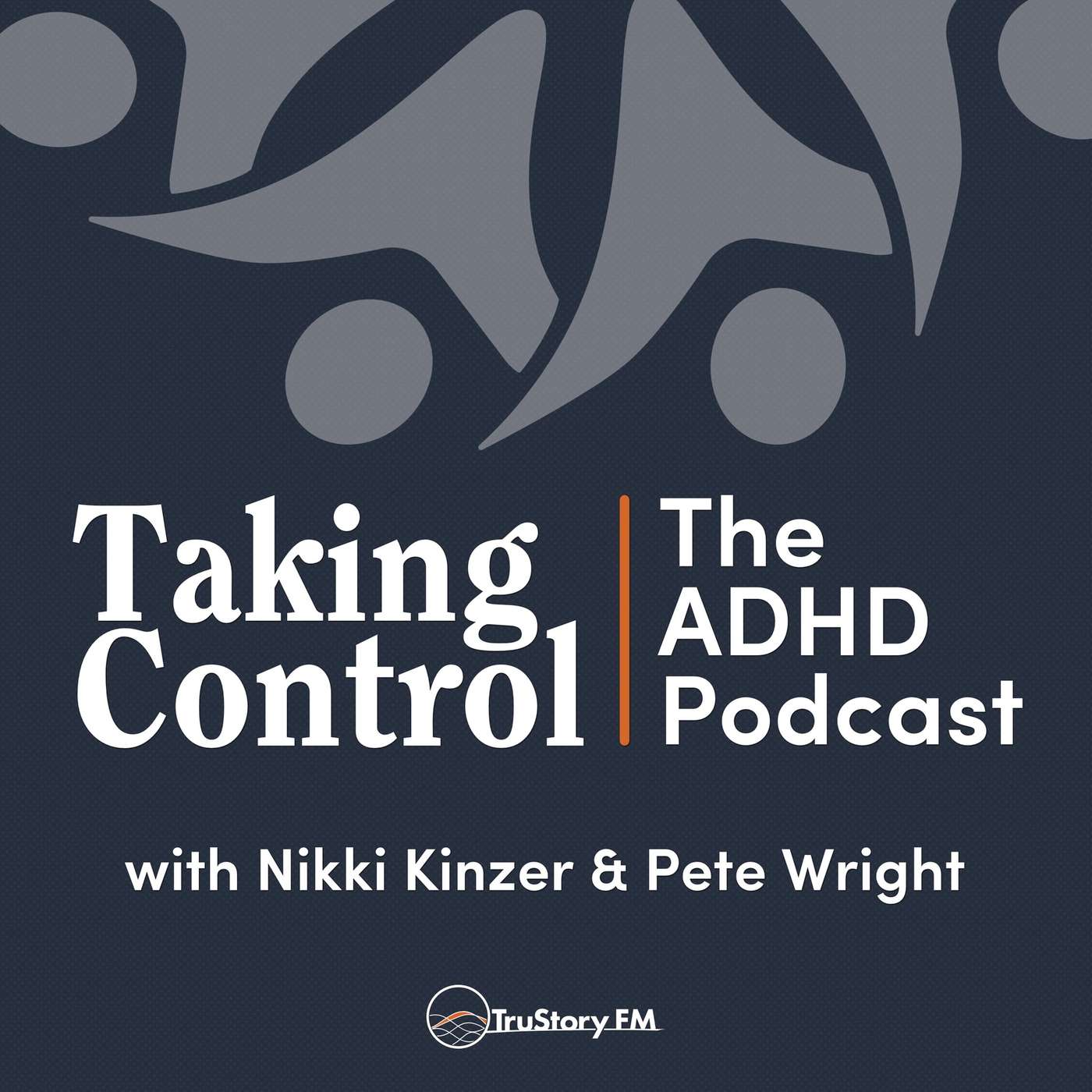
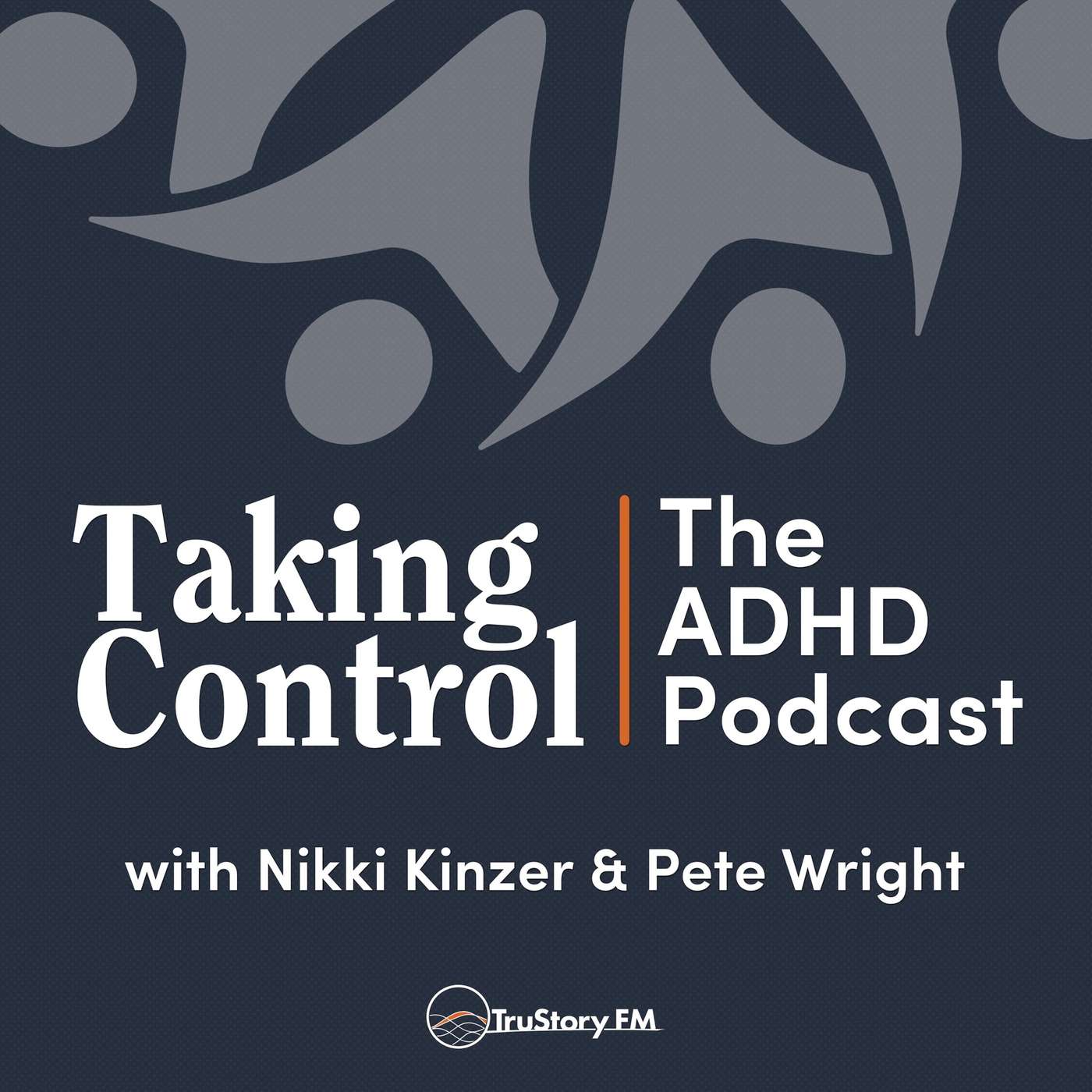
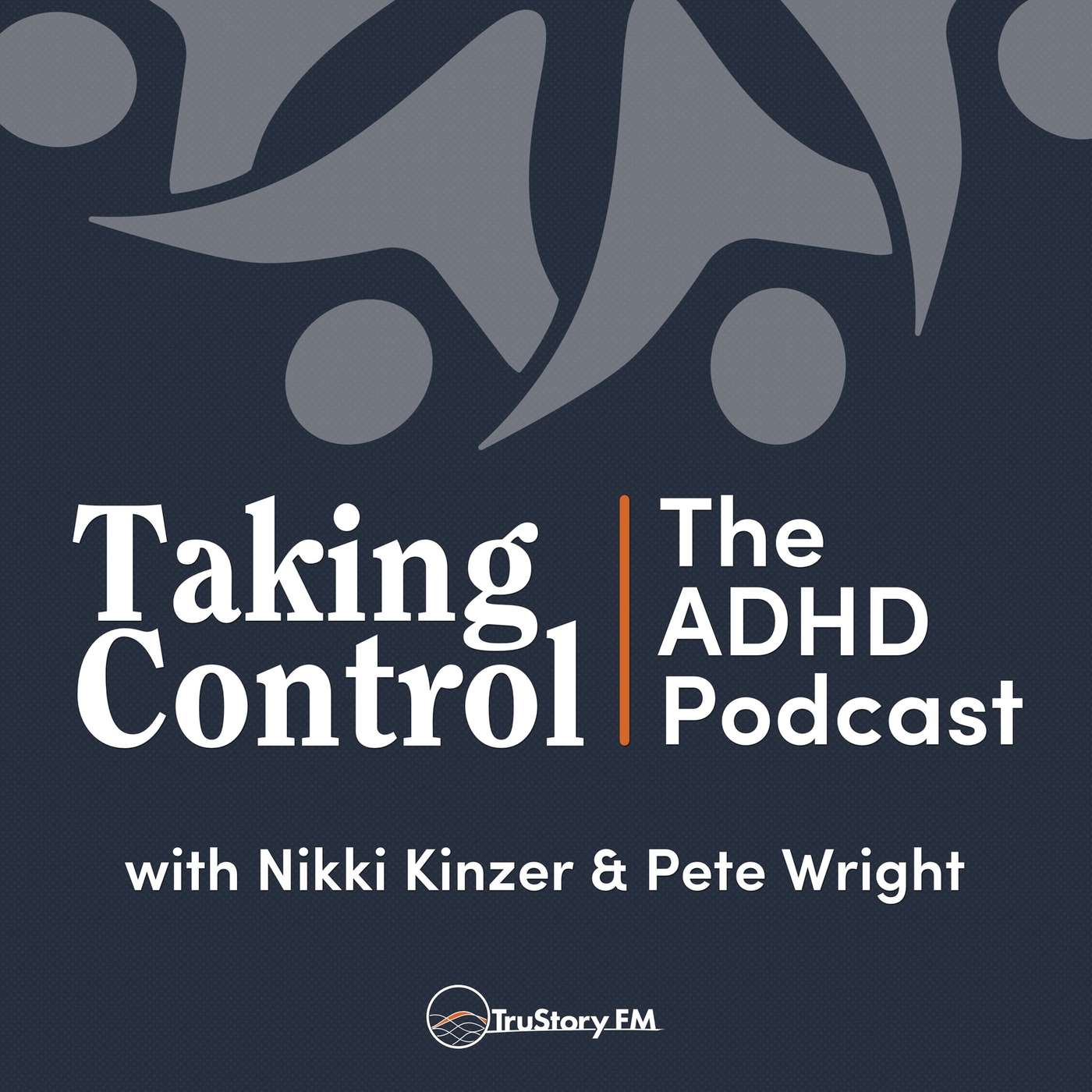
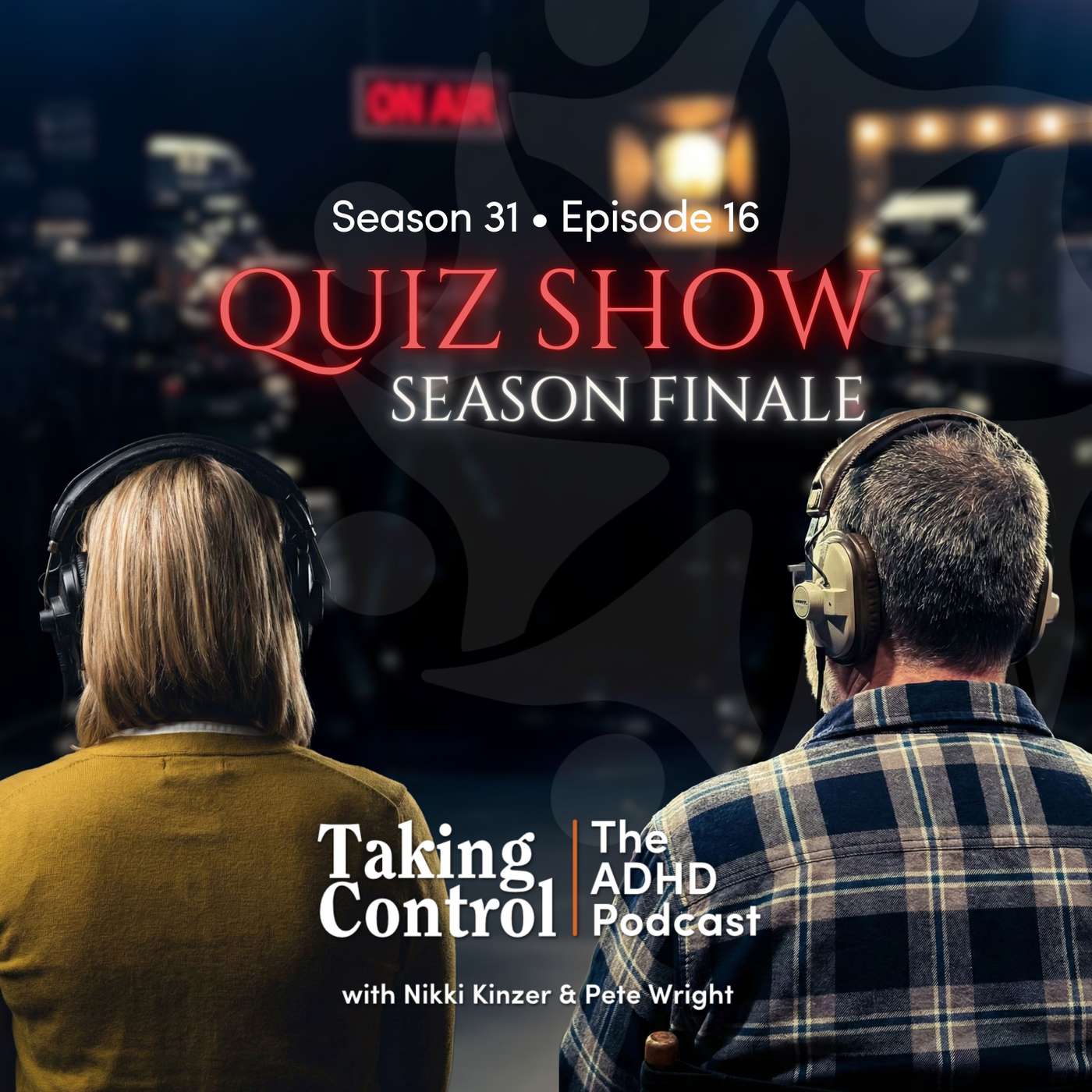

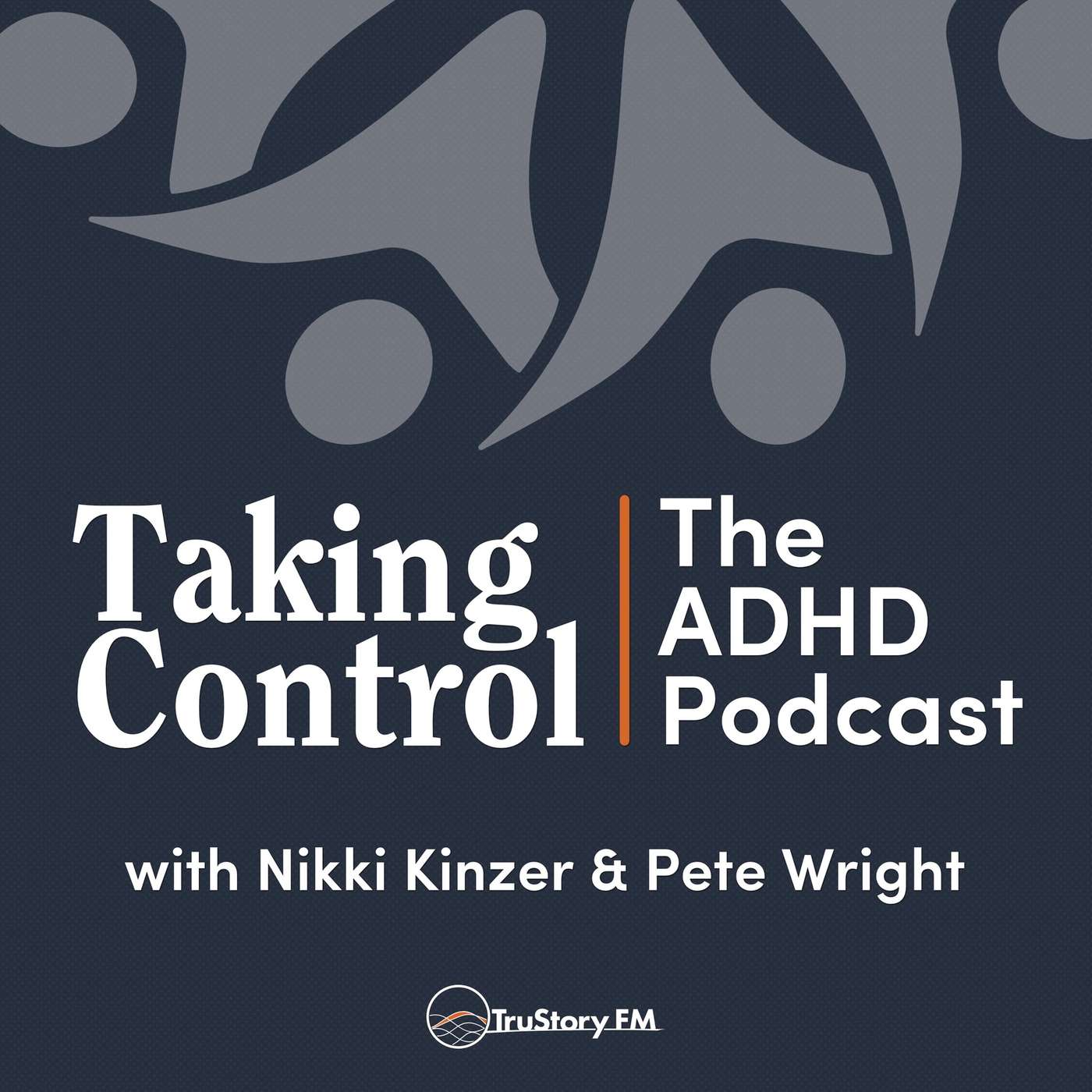

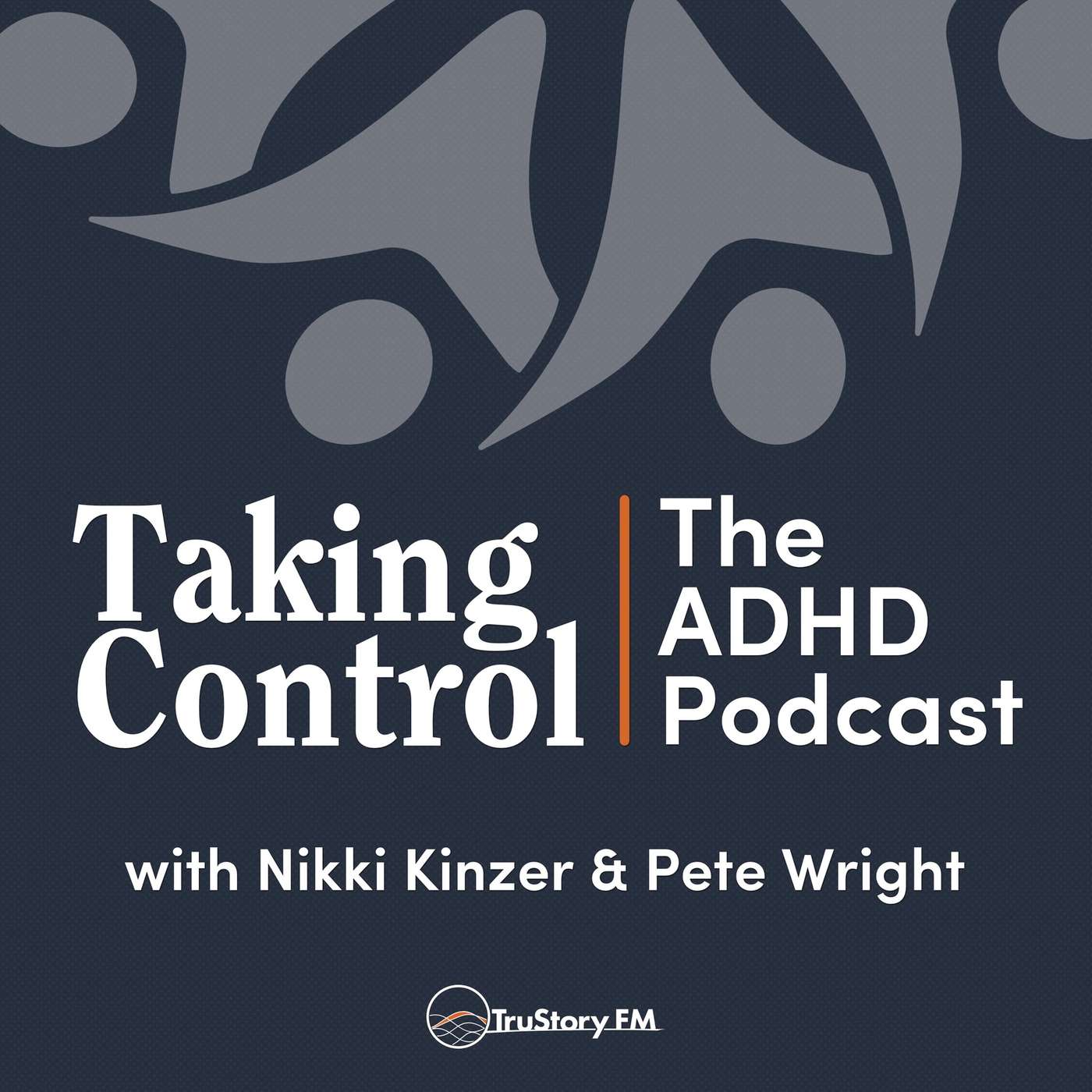
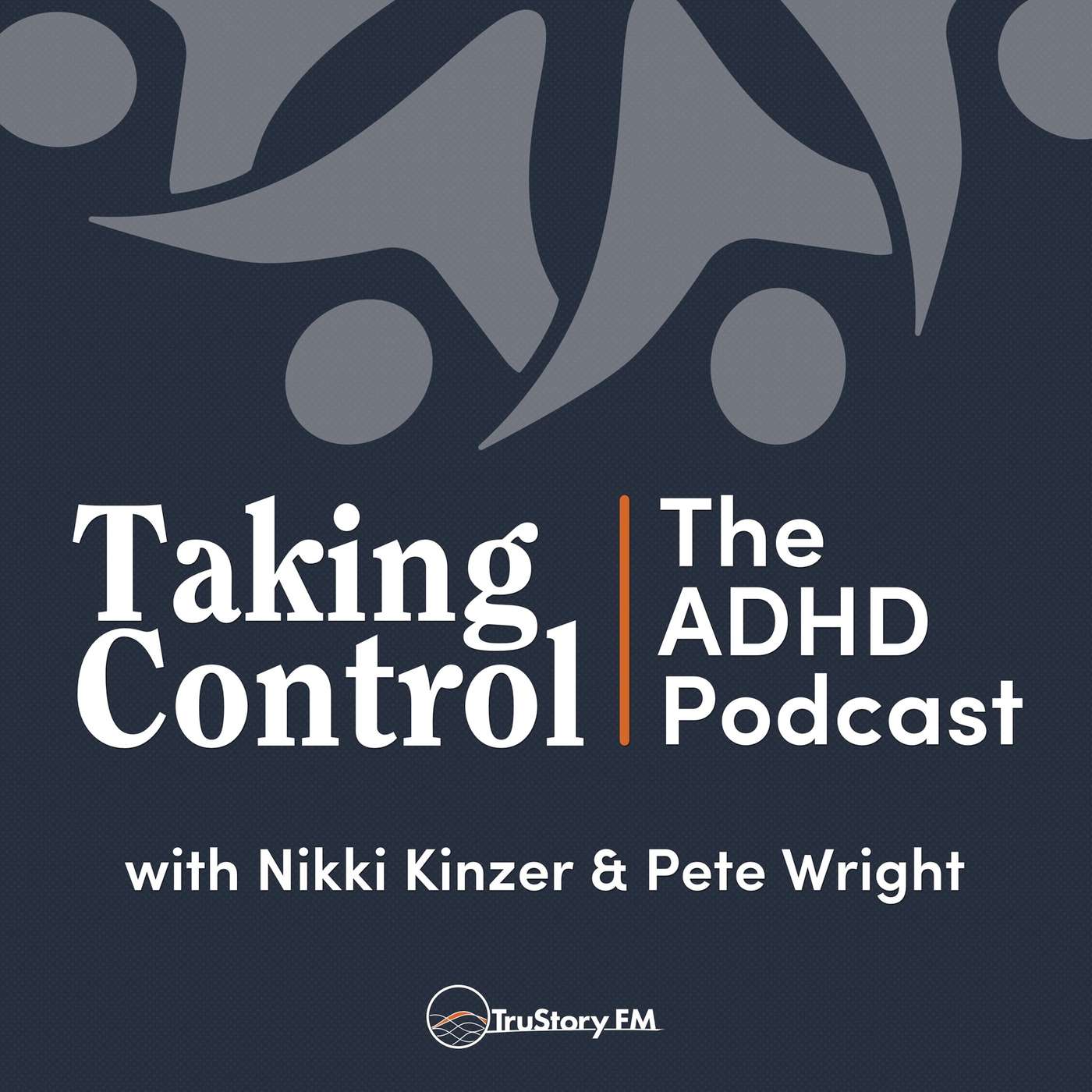
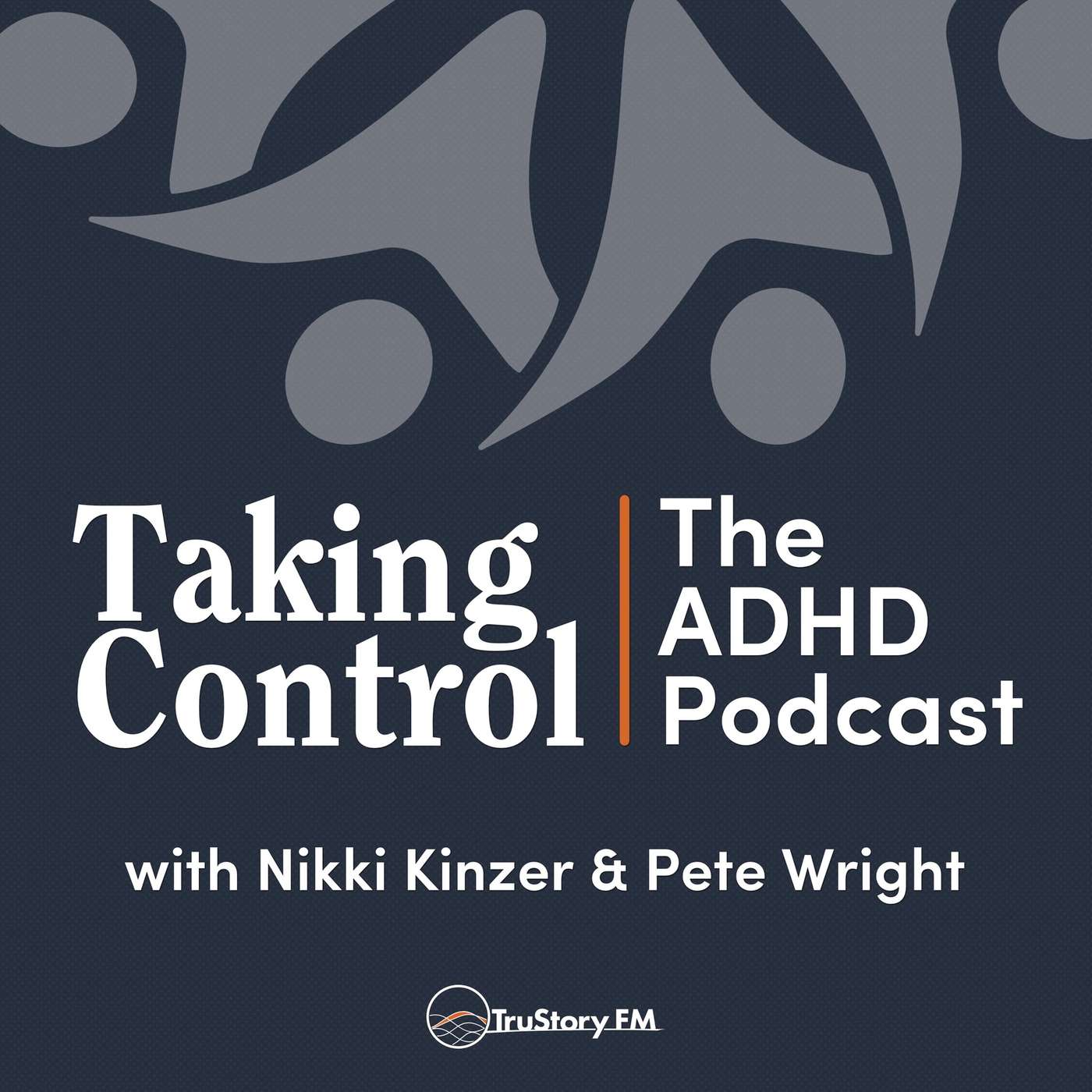
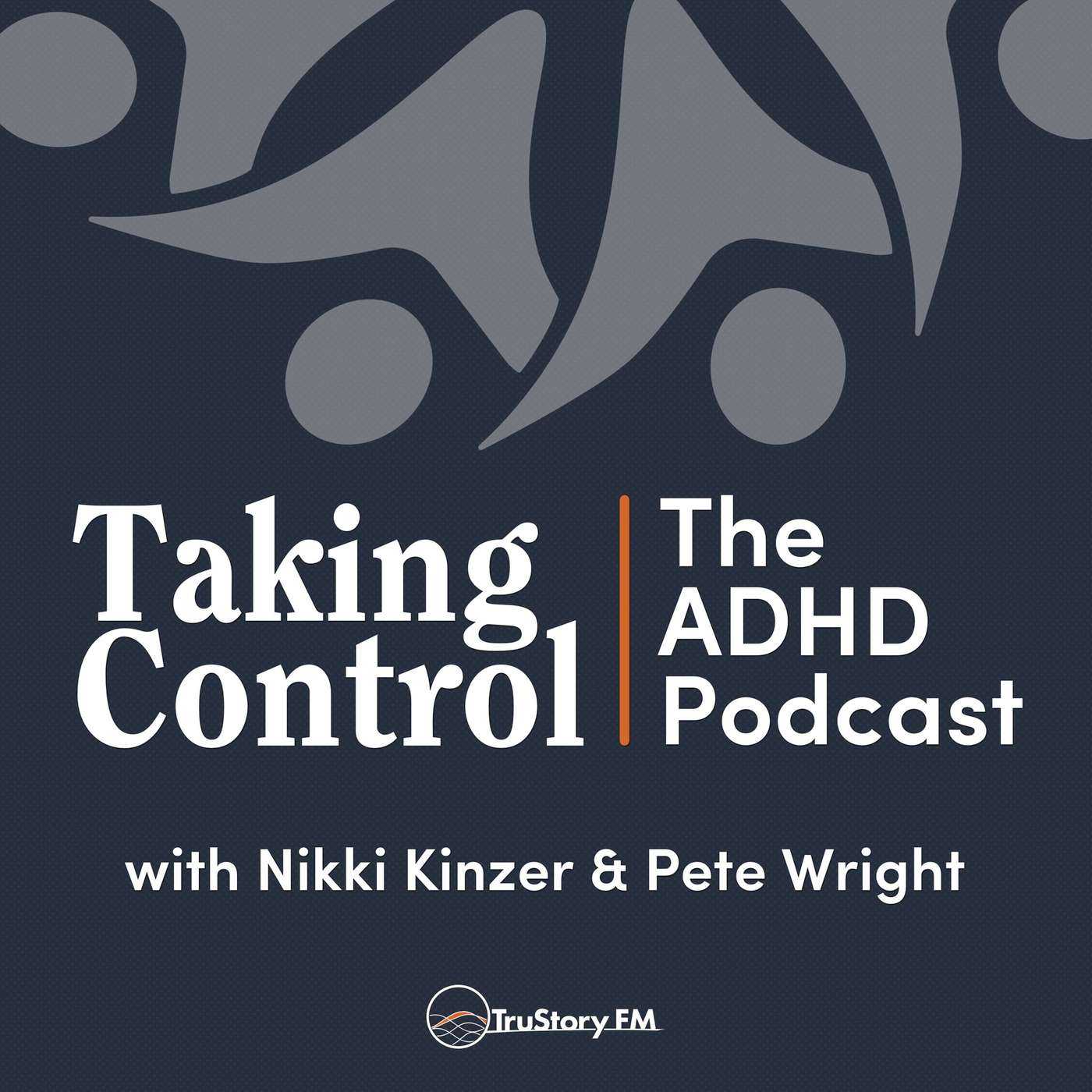
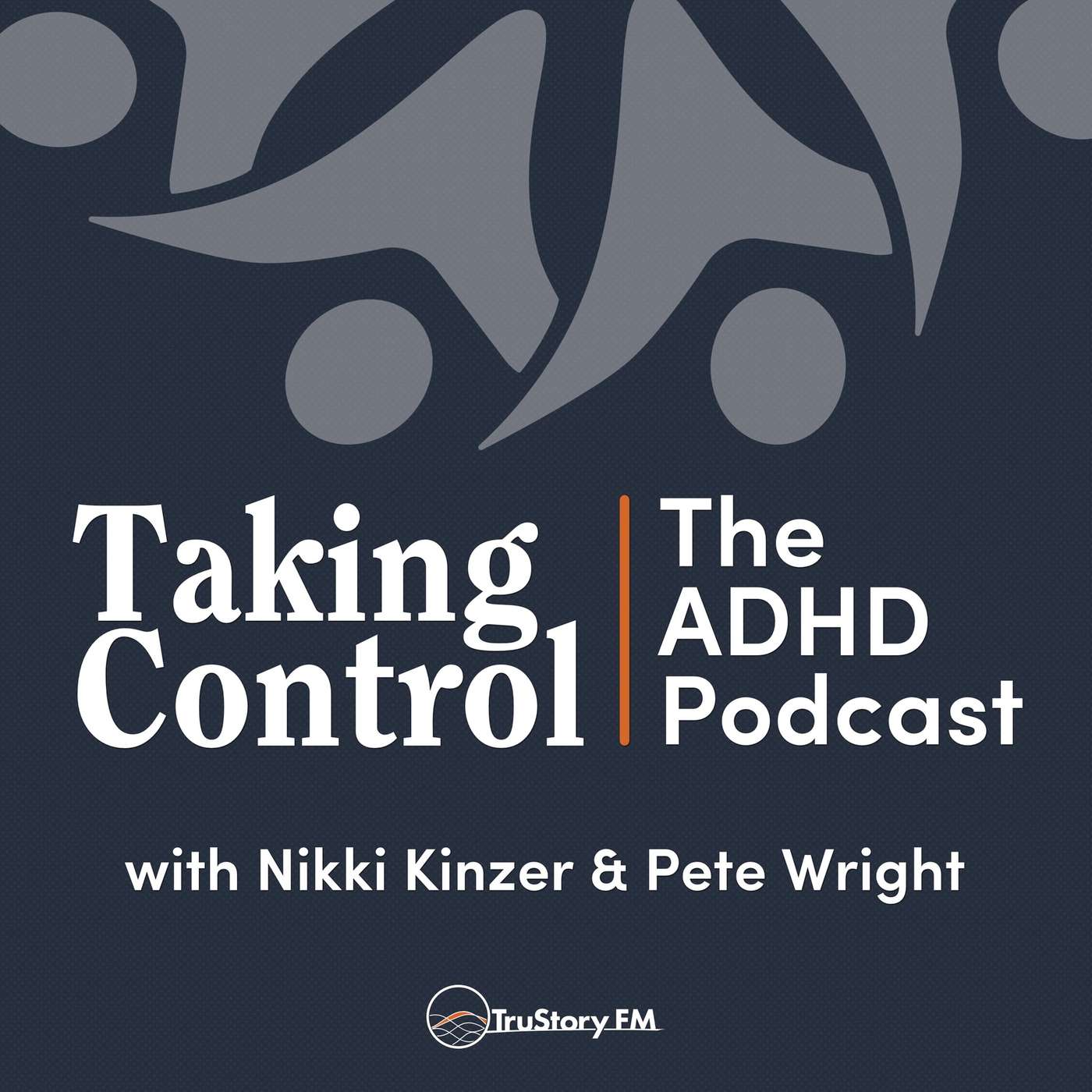
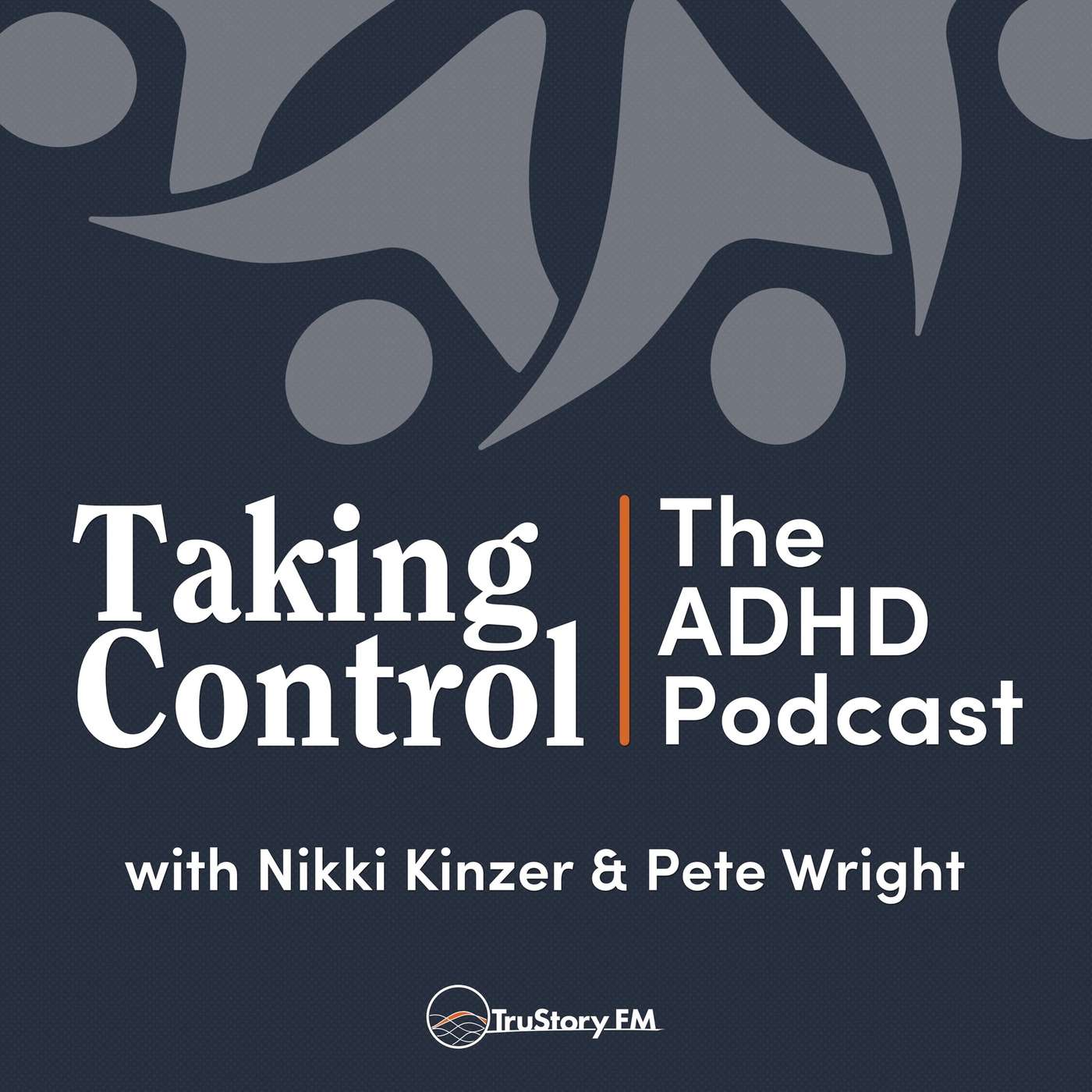
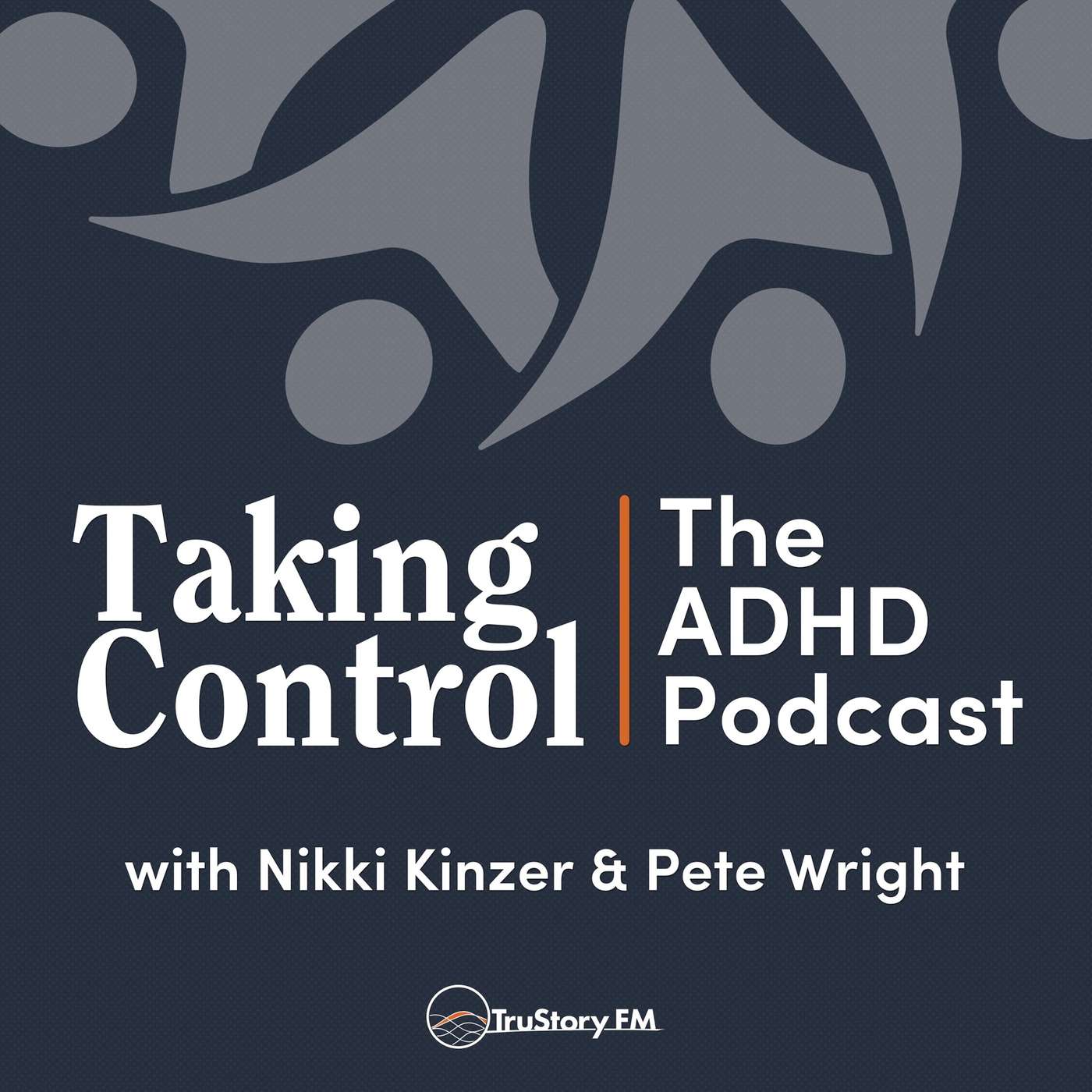
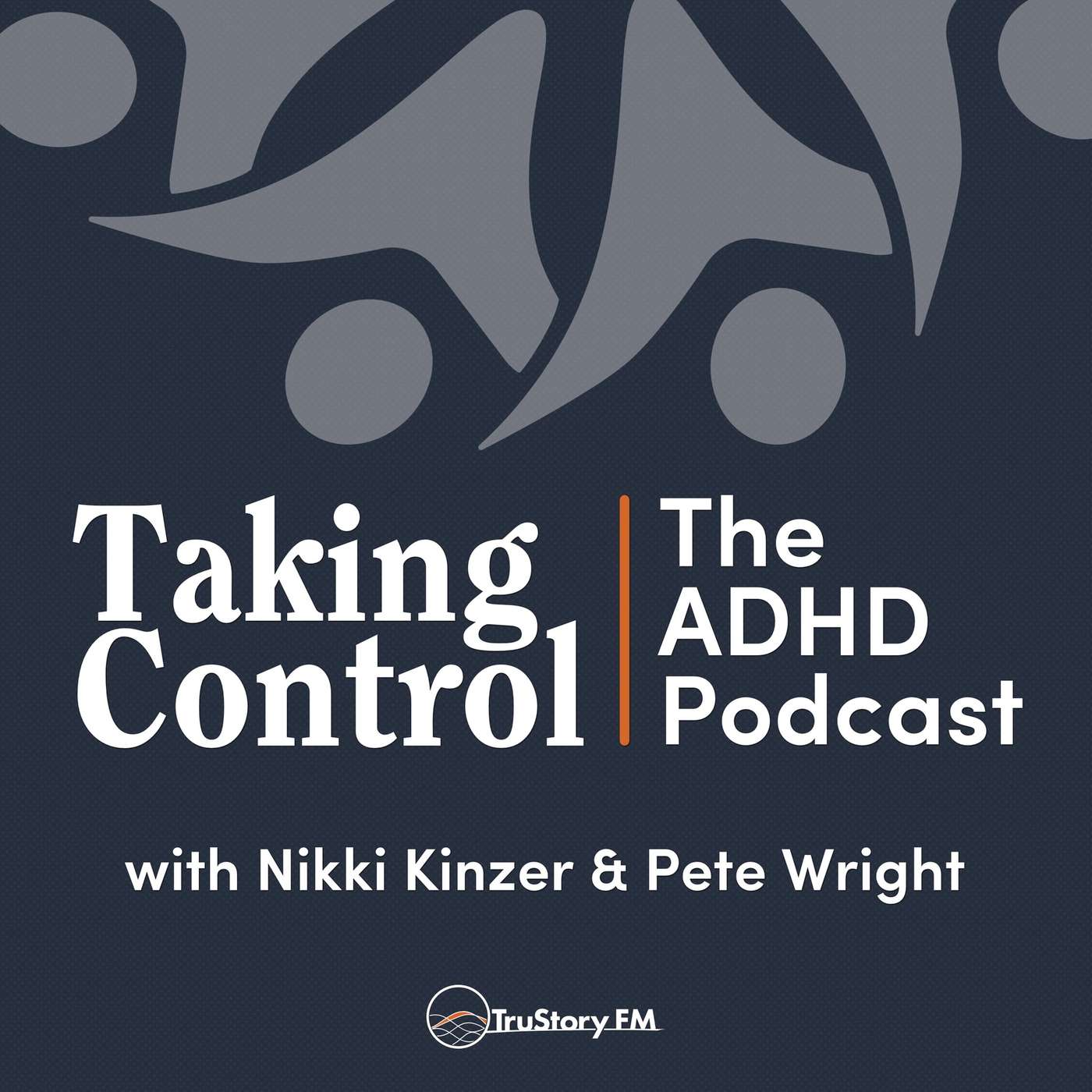
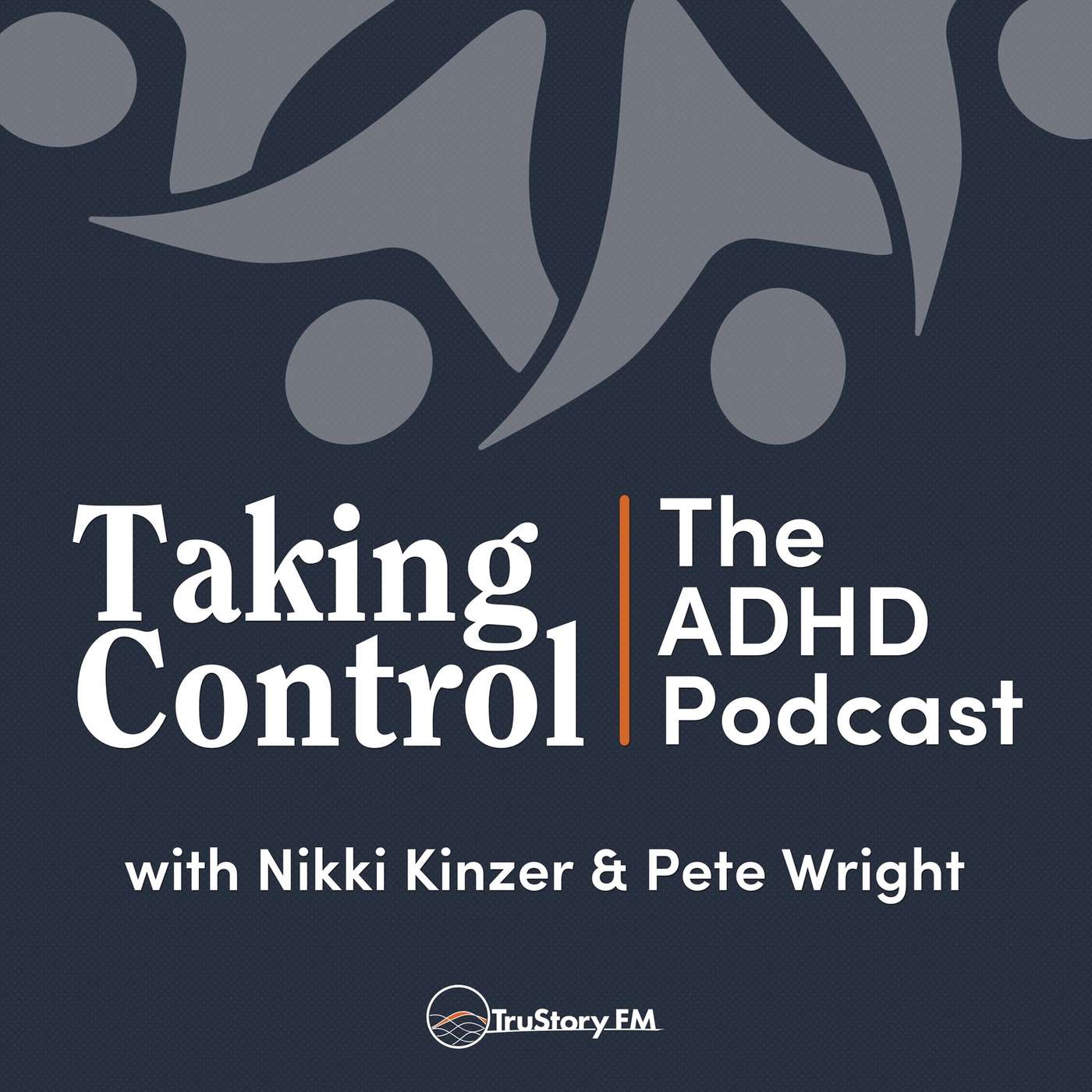
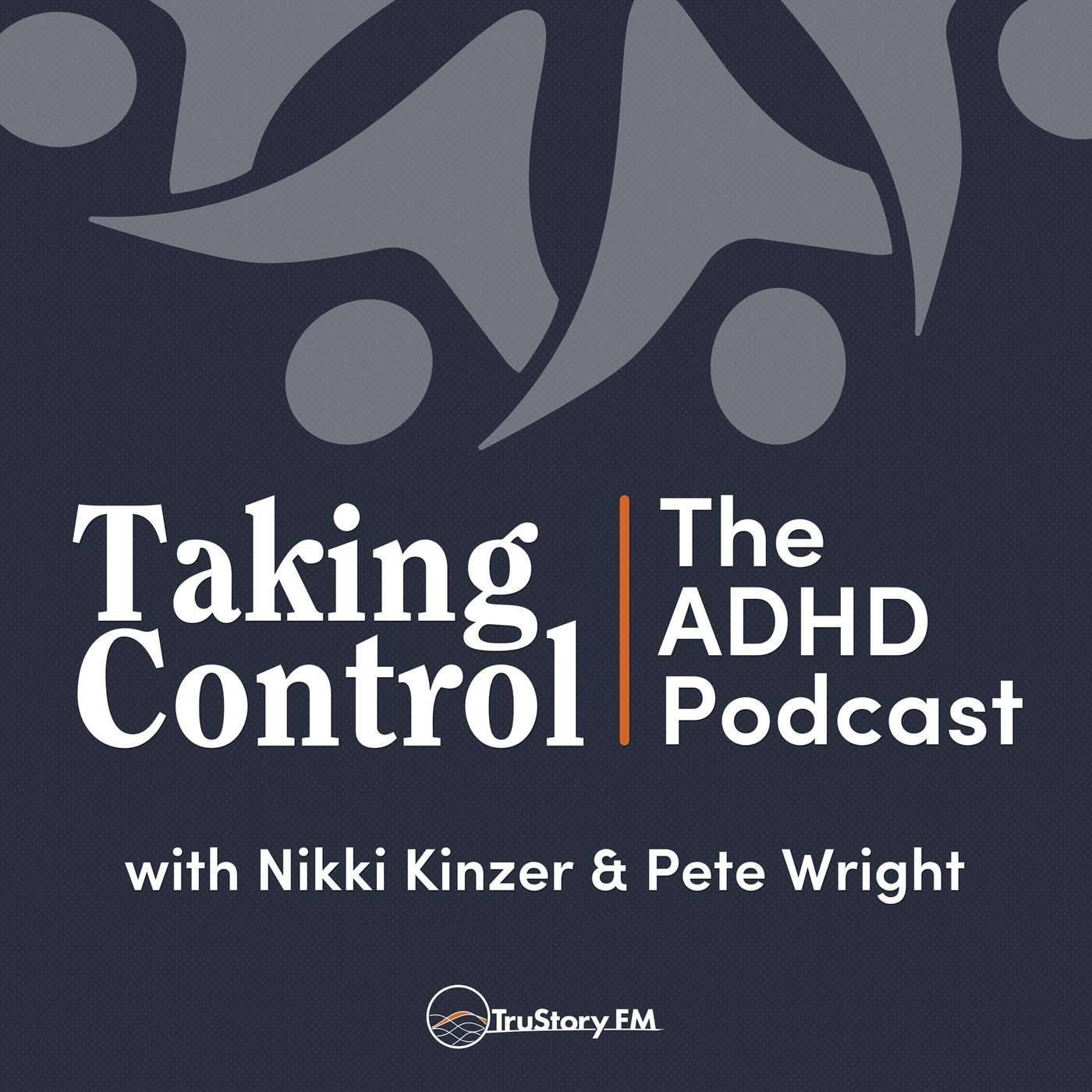
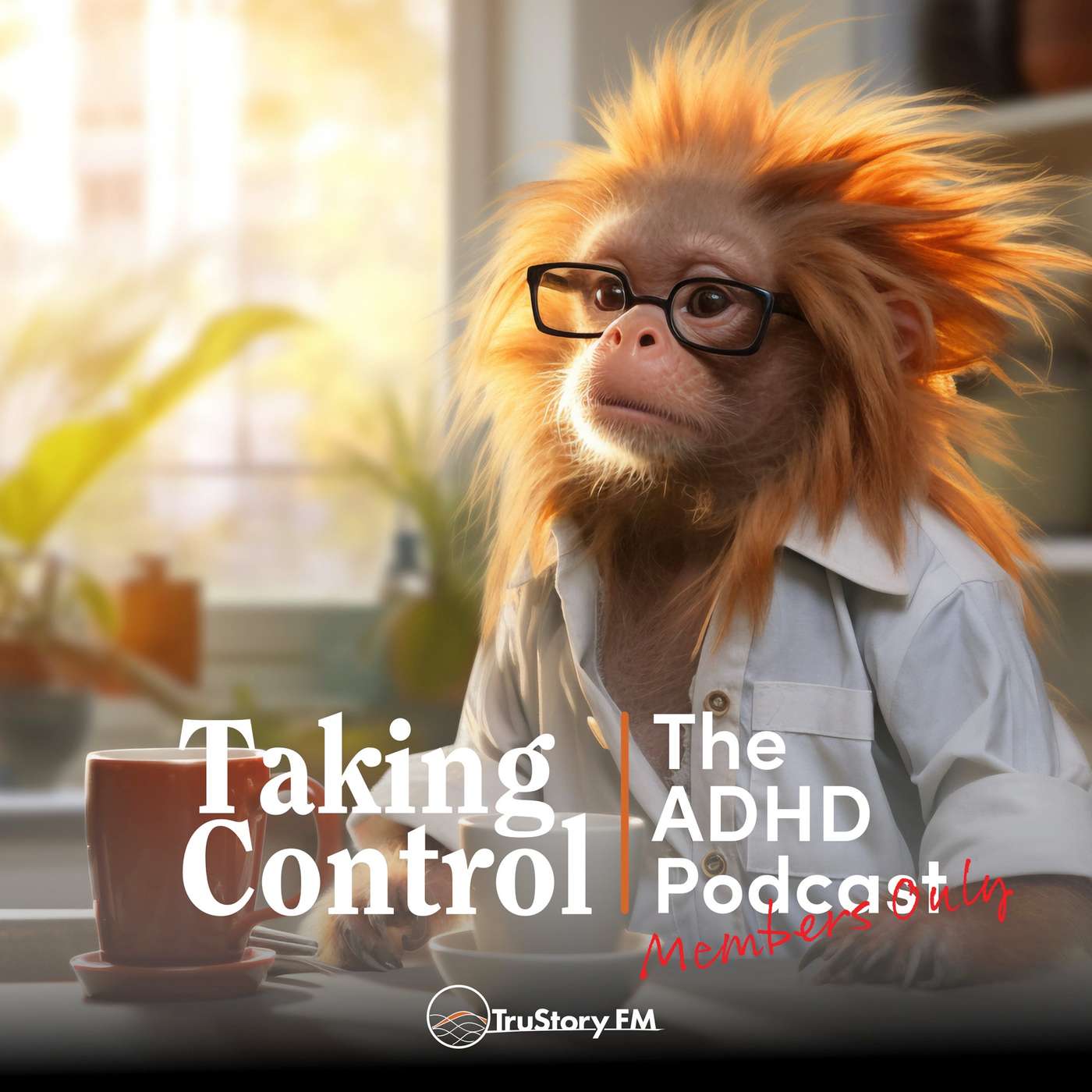
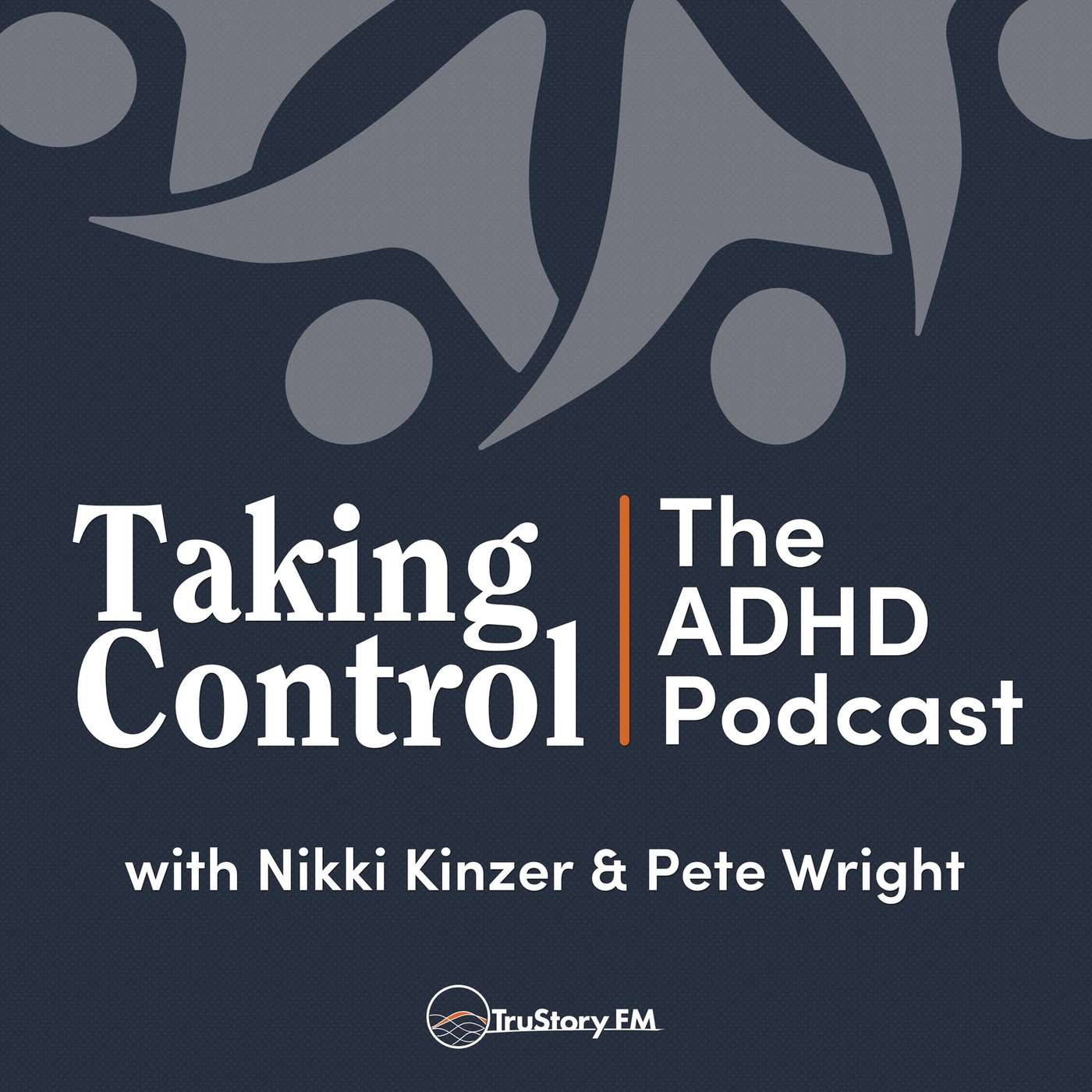
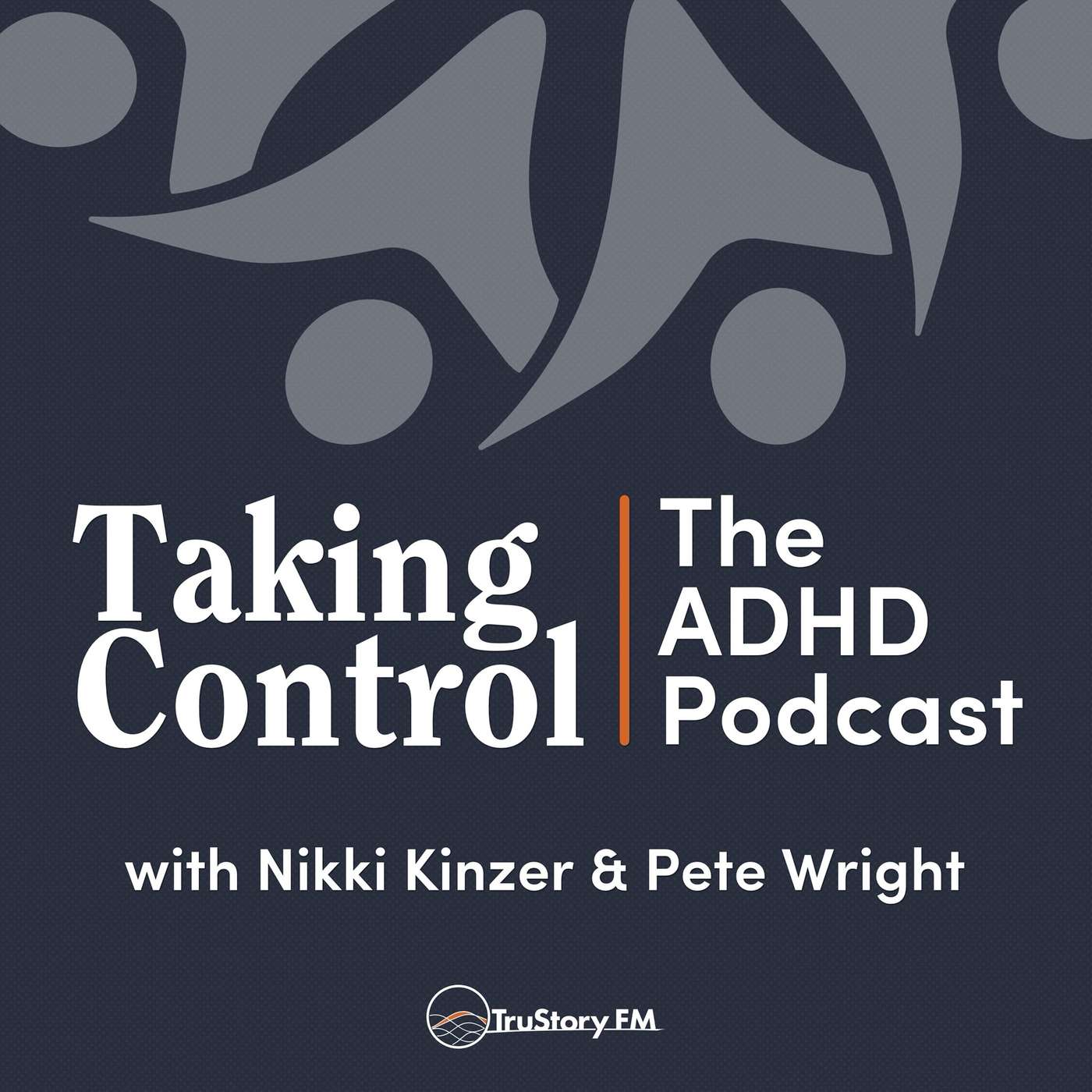



oh my gosh anxious overcorrecter is ME! I haven't ever had someone verbalise this and clarify what it is that I do. thank you!
this is amazing. I had never even thought of this as being a symptom or a reaction from ADHD. I just put it down to me being weird. knowing this means you can treat itand work through or with it. best podcast!
It was a great episode. thank you guys 🙏🏻😊
⅘ 00
I needed to hear it. Thank you!
good one! thank you!
I 💜💜💜💜 that Pete knows "We're All In This Together!" This episode made me feel so much better. It was so positive and encouraging. I so appreciated this!
great tips!
nice
This is just what I needed to hear today👍. Thank you!!!
I tried all of these that I could get my hands on, and then some, and I have to say, Tick tick is now taking some strides to outdo Todoist on Android! Todoist is linked with my Google home mini, but there are so many clicks to edit something, the widget is clunky, and you have to subscribe to use tags! It gets better with each update, they have been blowing me away these past couple months!!
I found your podcast a few weeks ago and it has completely changed my perspective on ADHD and how to thrive with it. I'm learning so much. Thank you so much for this podcast. Its life changing.
It seems like the link to your webcast isn't available in the description
Have you heard of The Secret Weapon Manifesto? http://thesecretweapon.org/the-secret-weapon-manifesto/manifesto-part-1-the-issue/ It combines GTD with Evernote and has saved my life! On top of that I can use my Google watch to say "take a note" and it will save whatever I need into my Evernote so I can come back to it later!
Thank you for this.